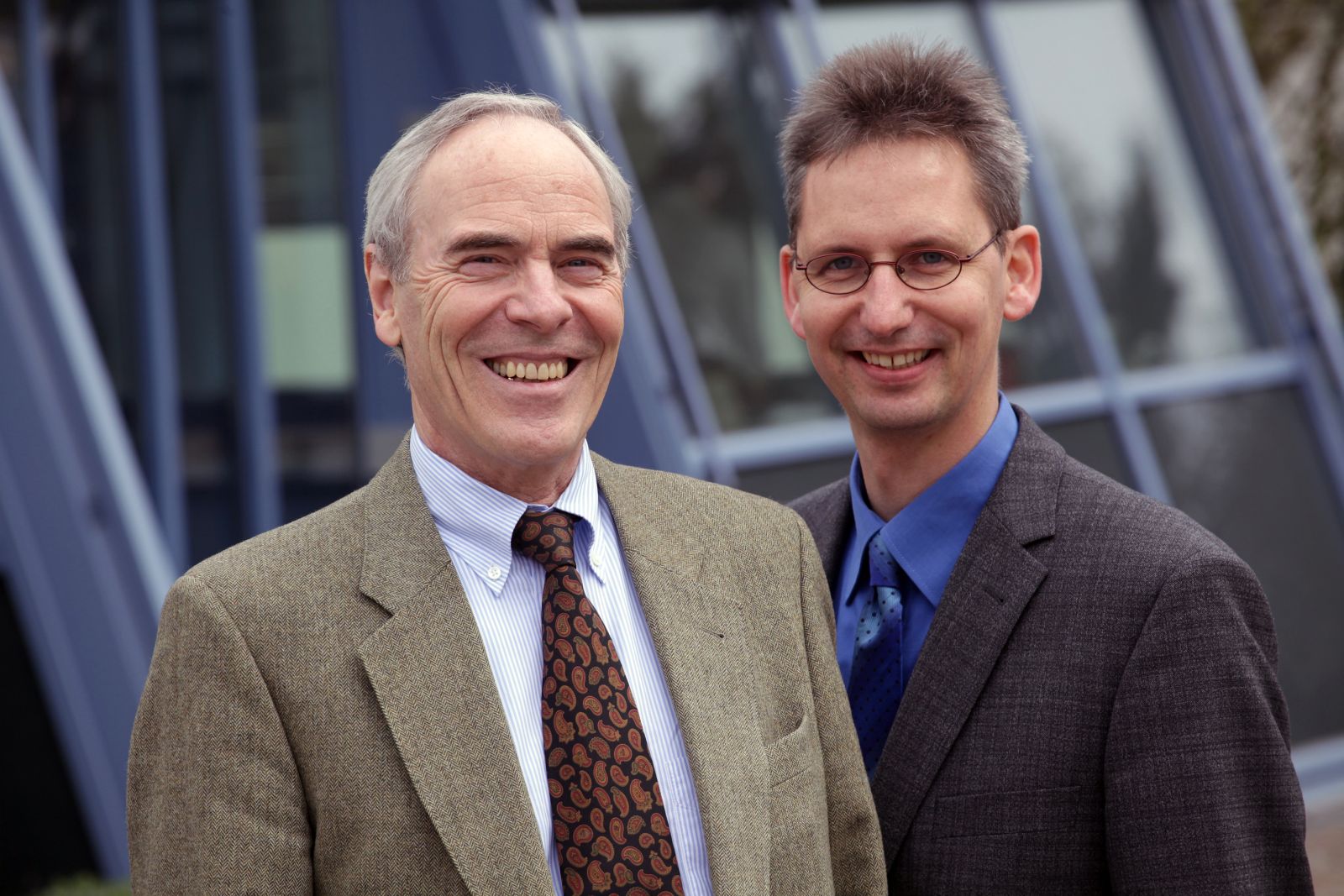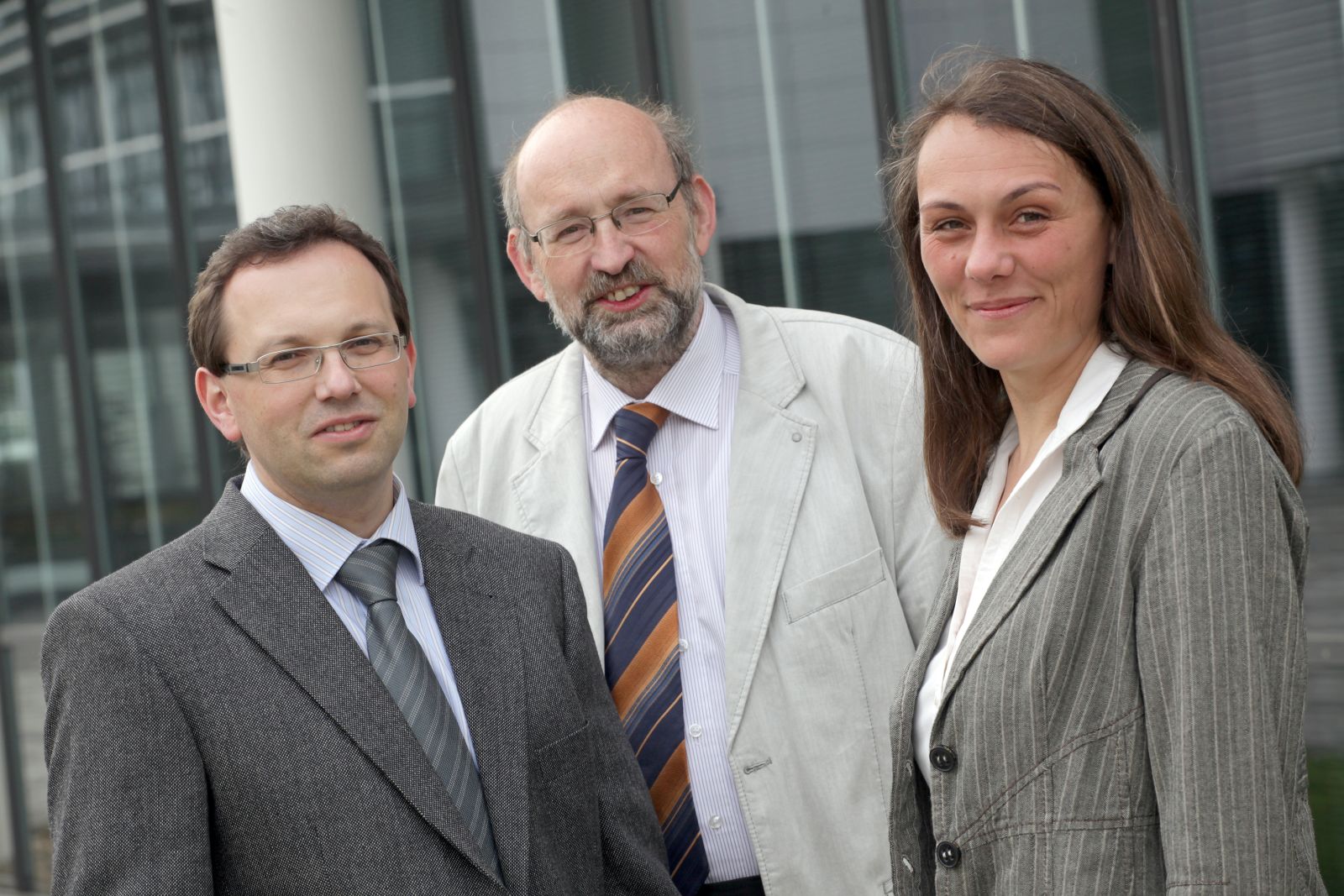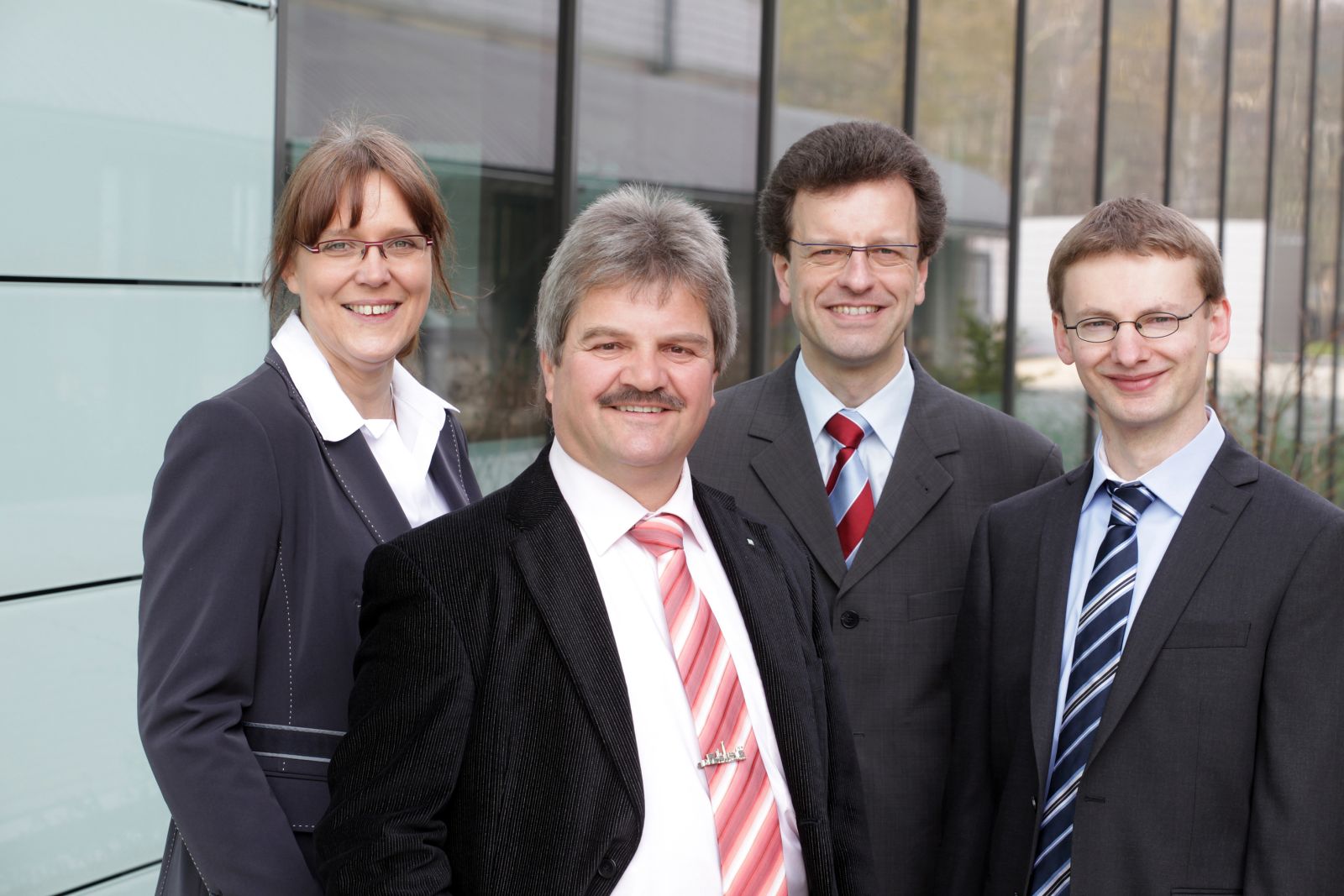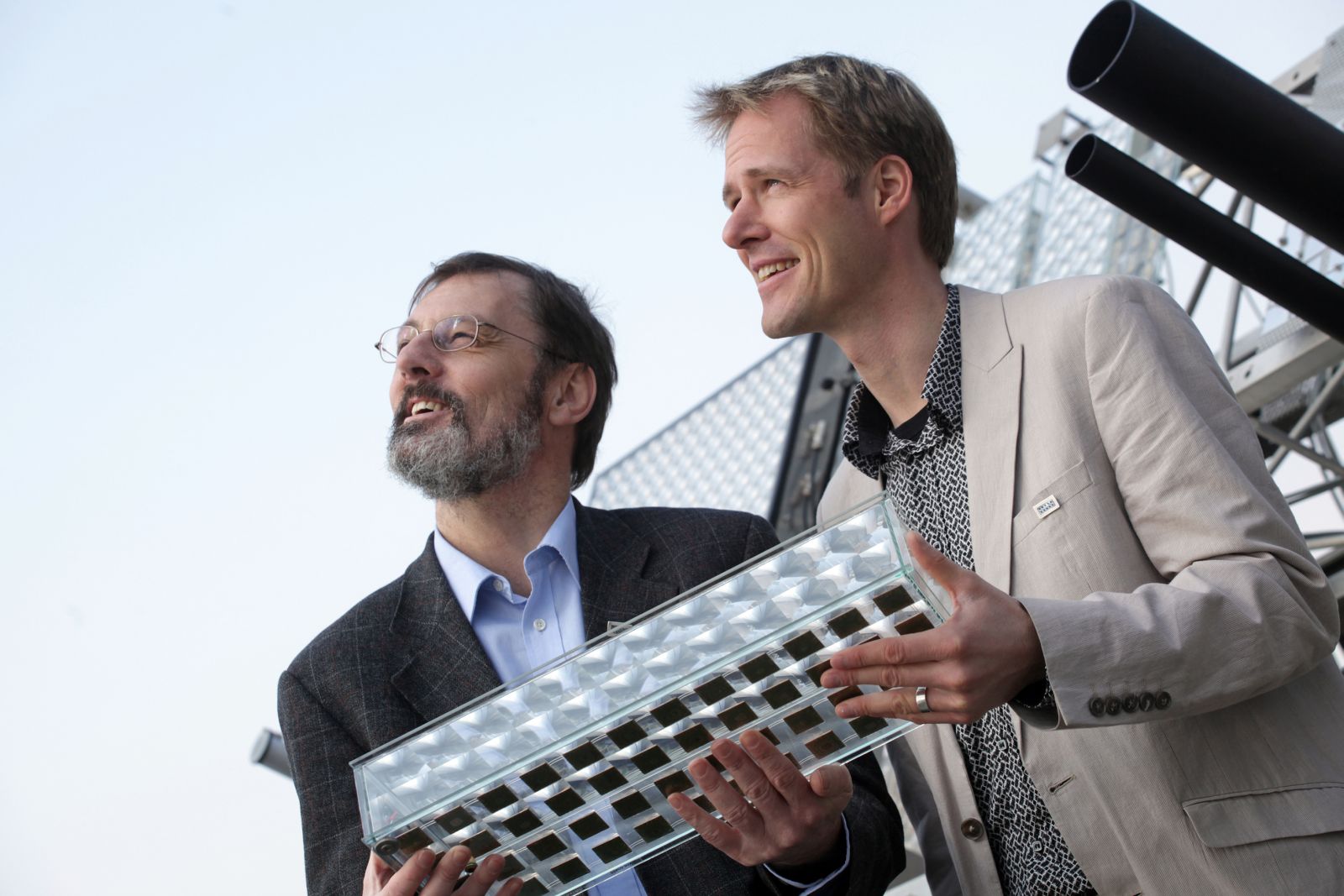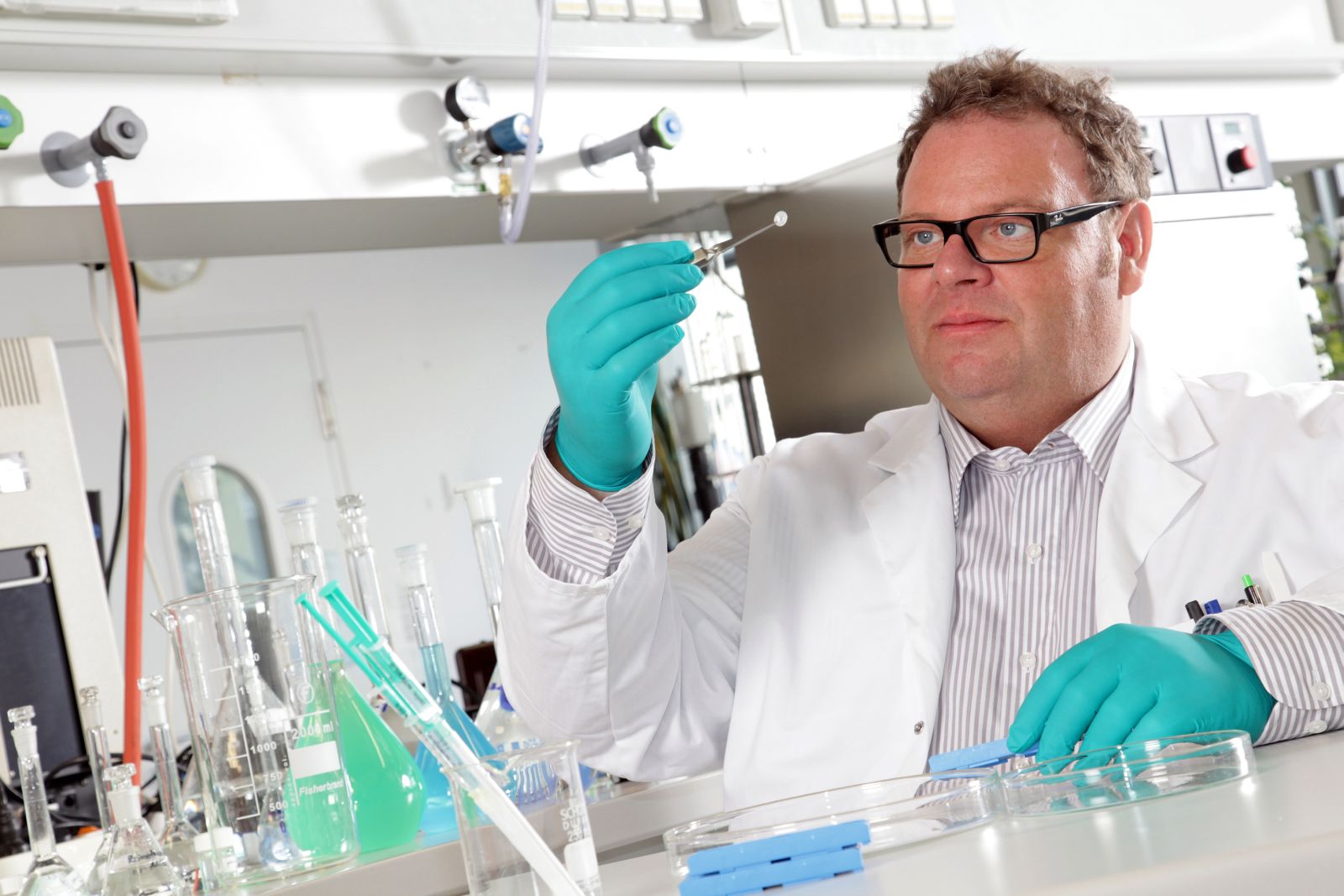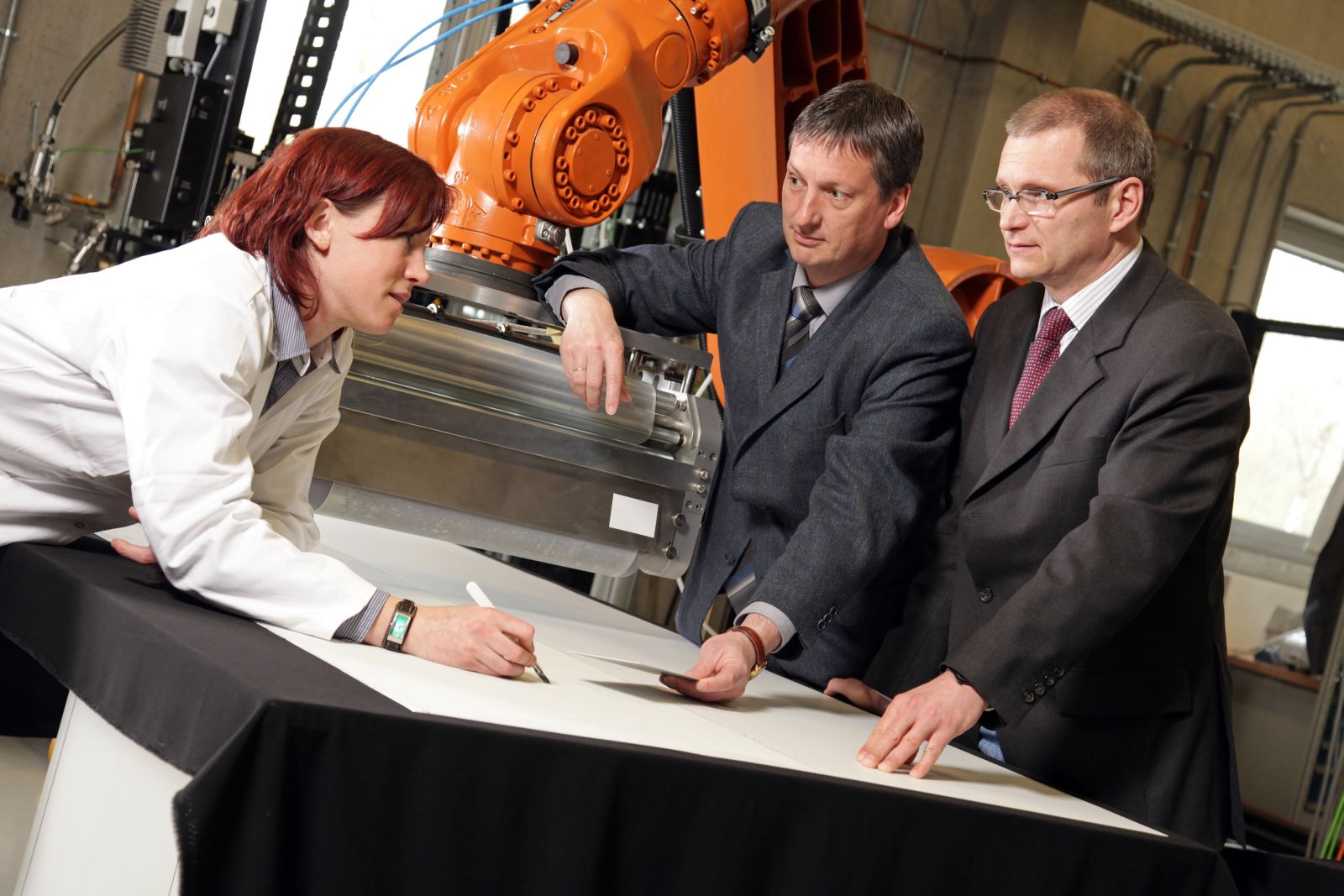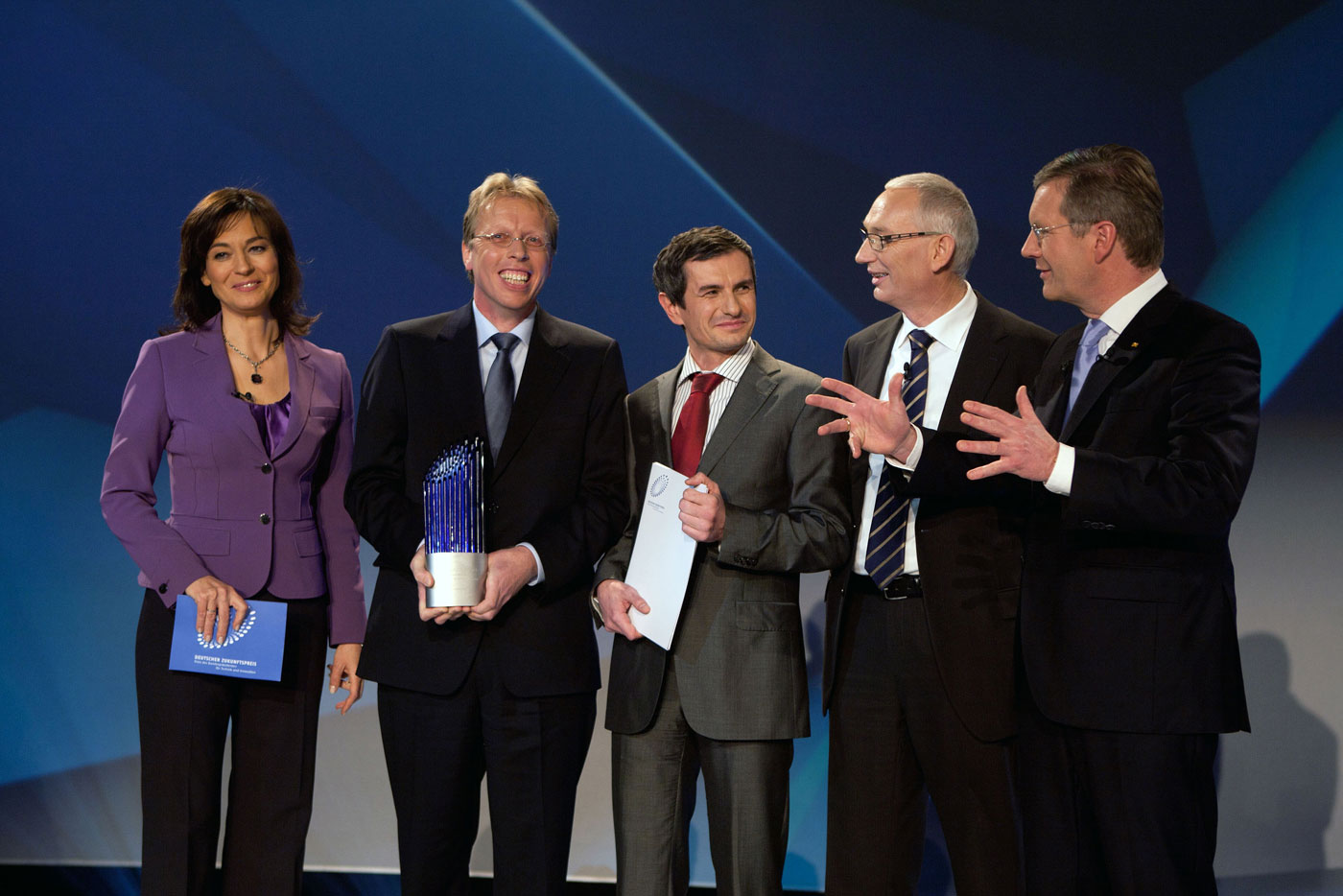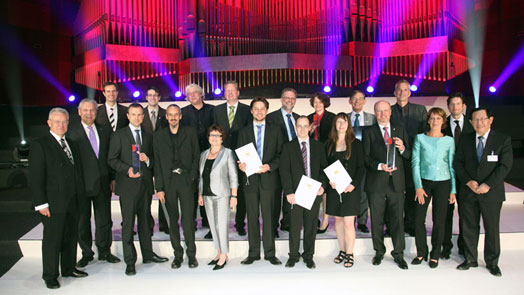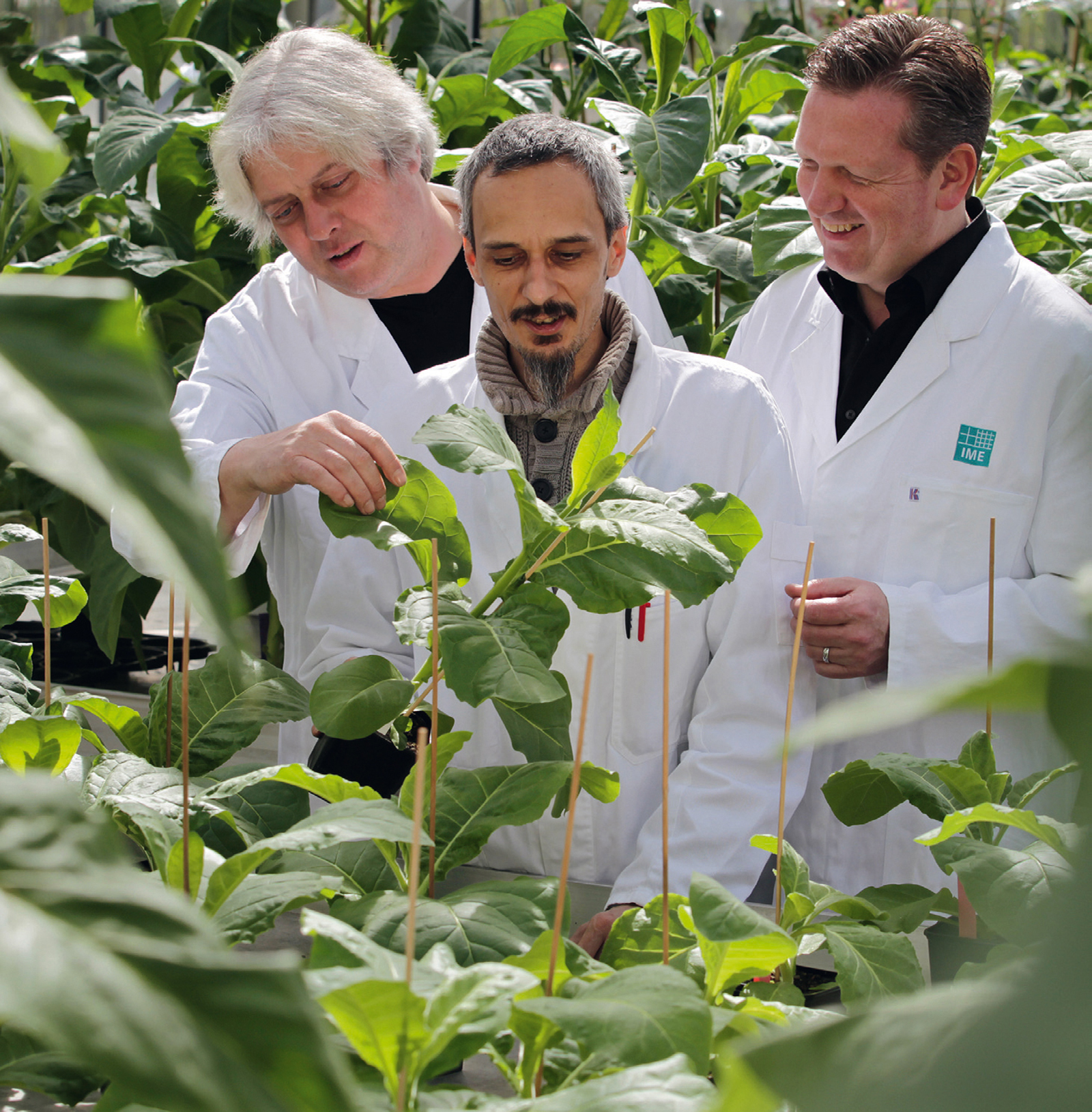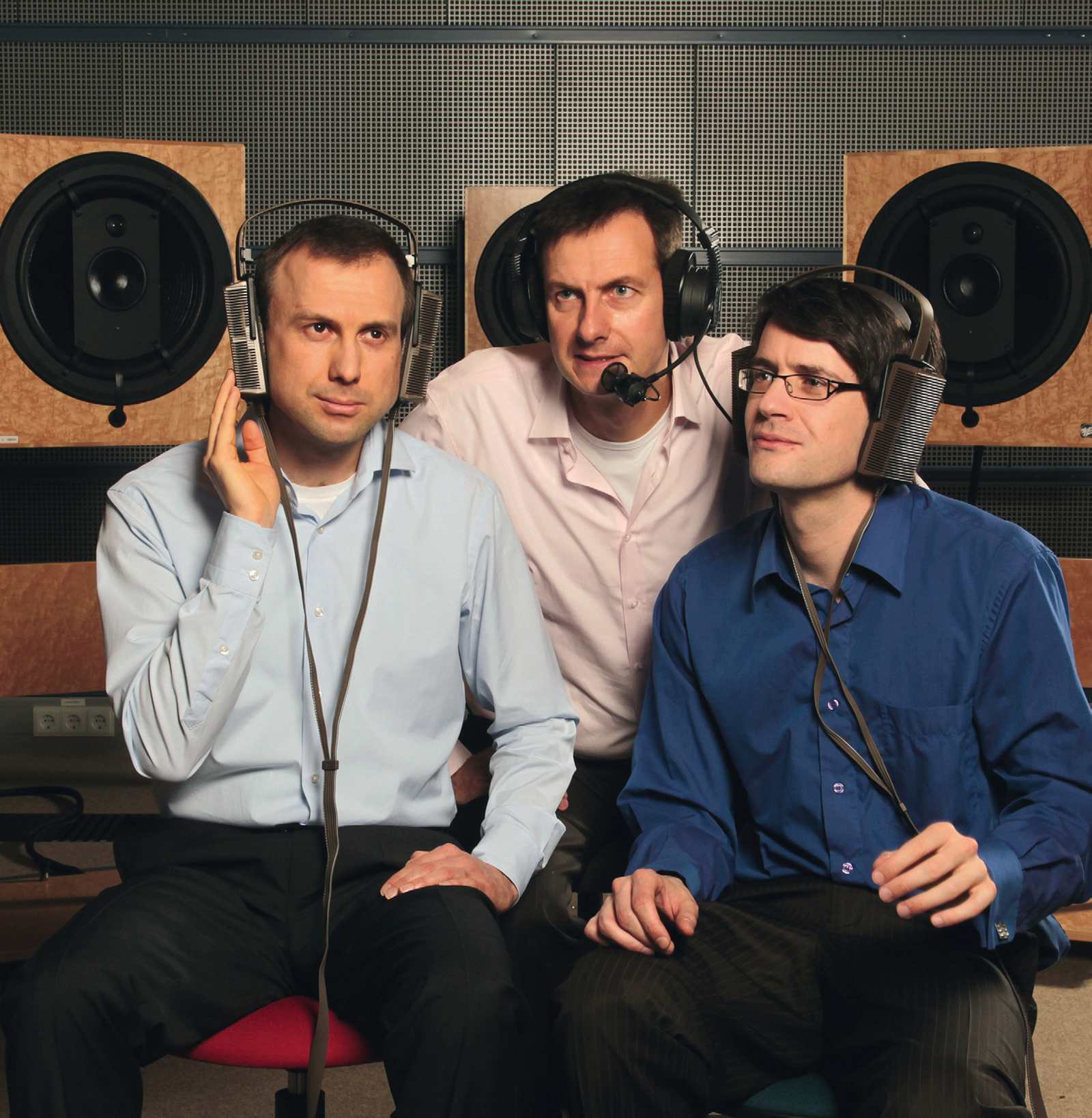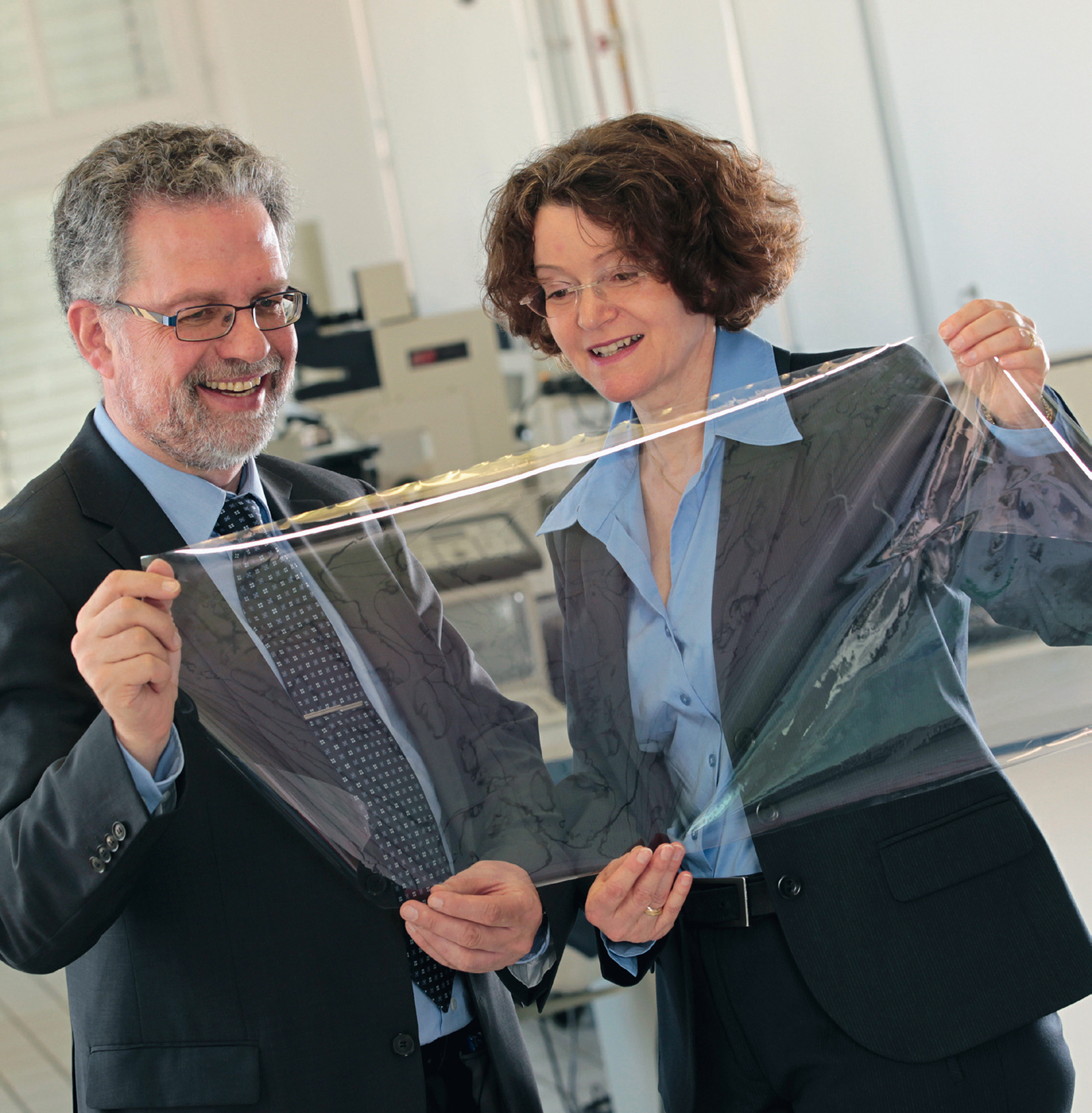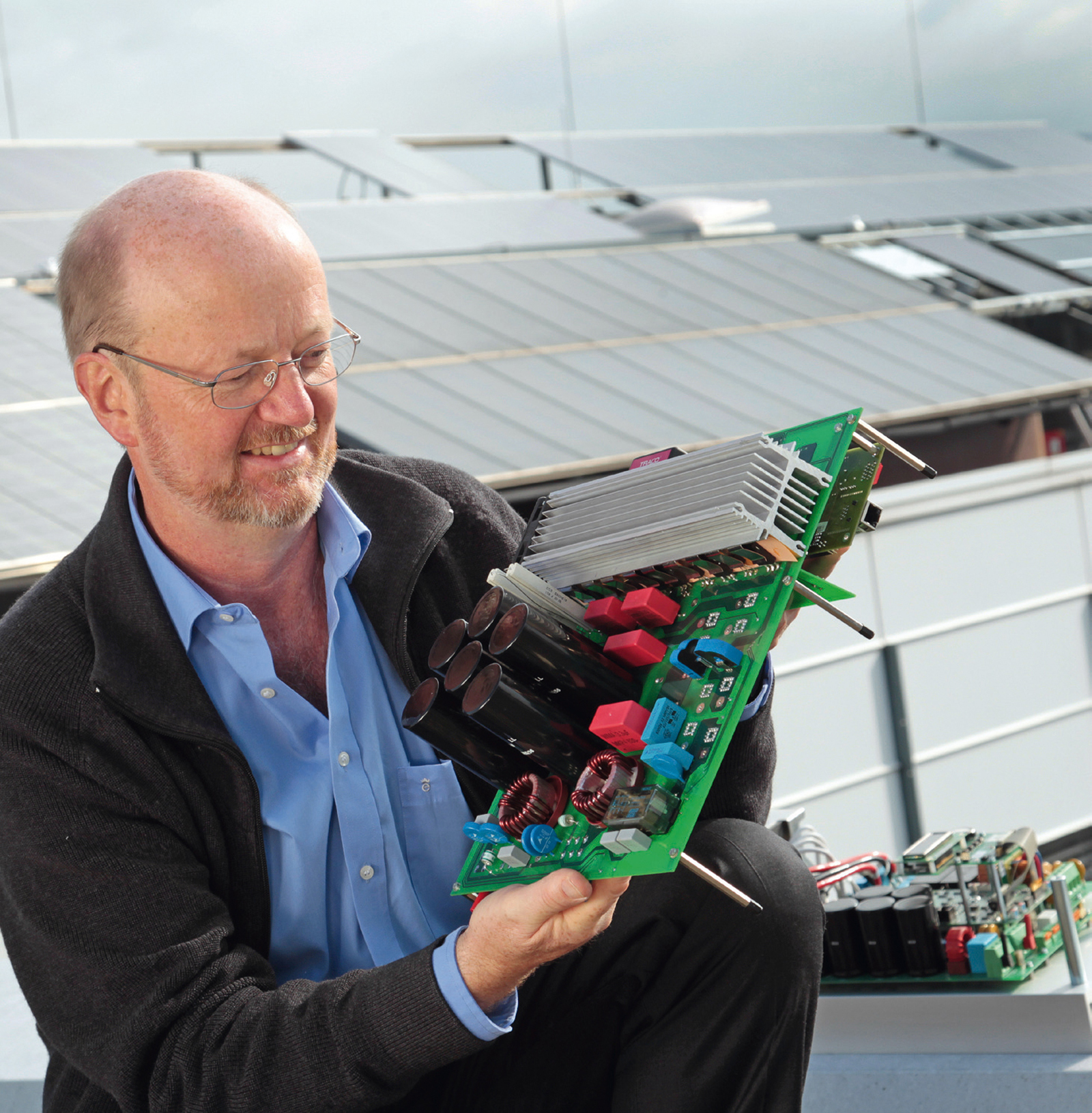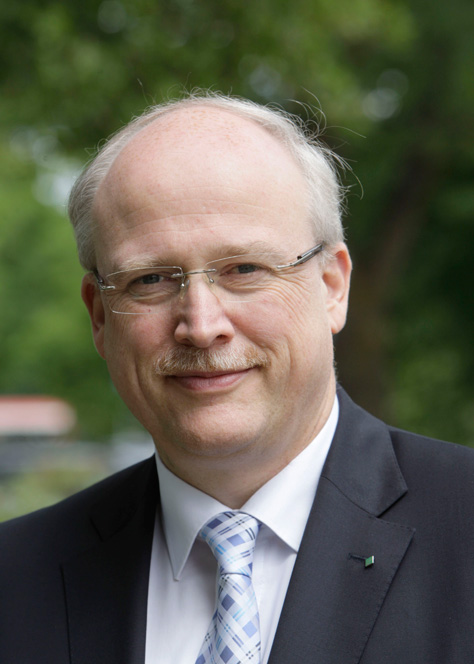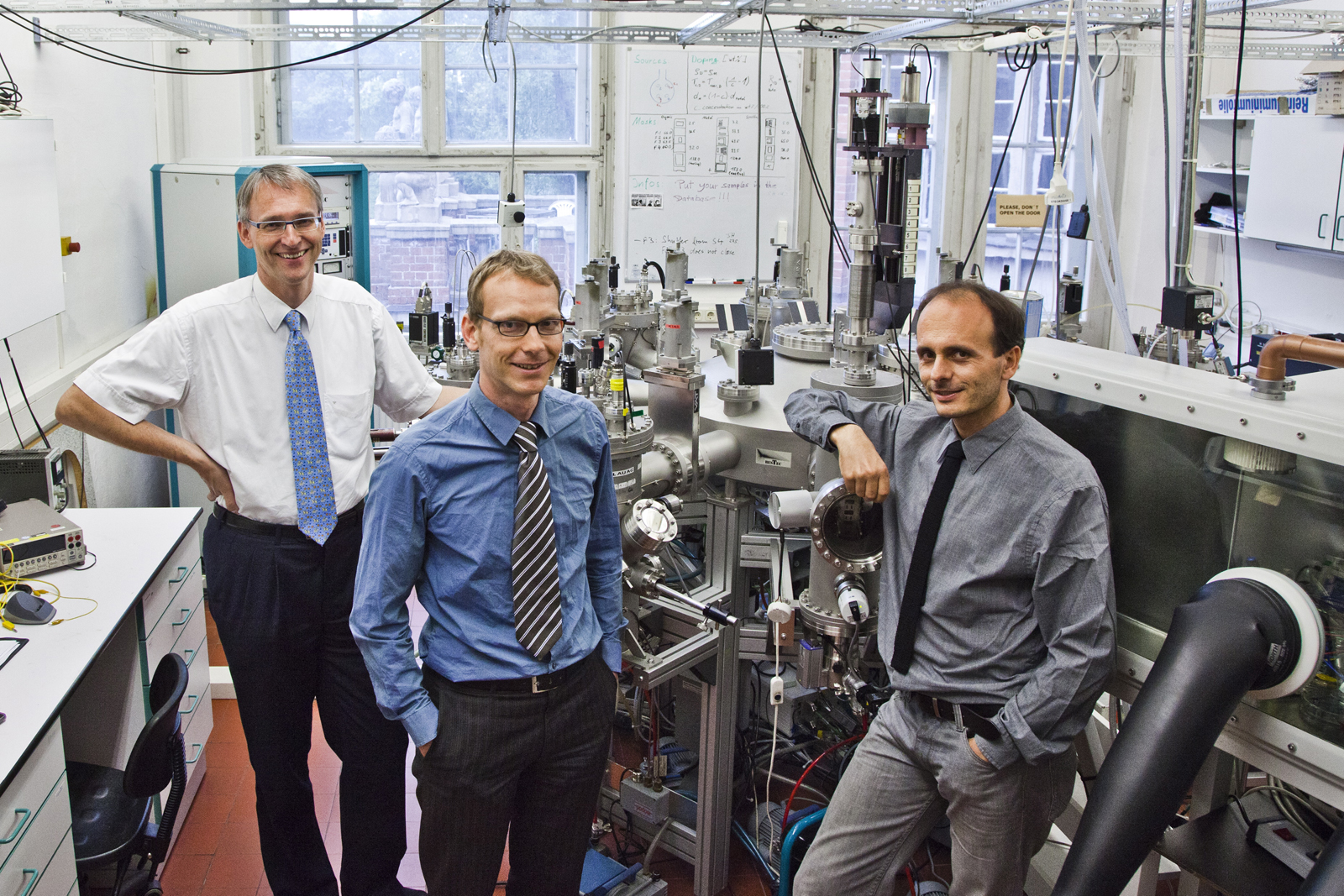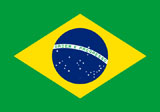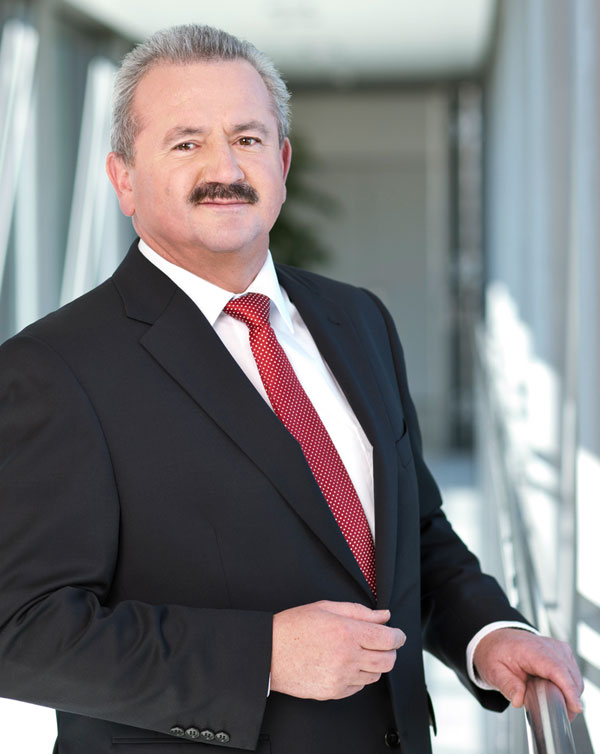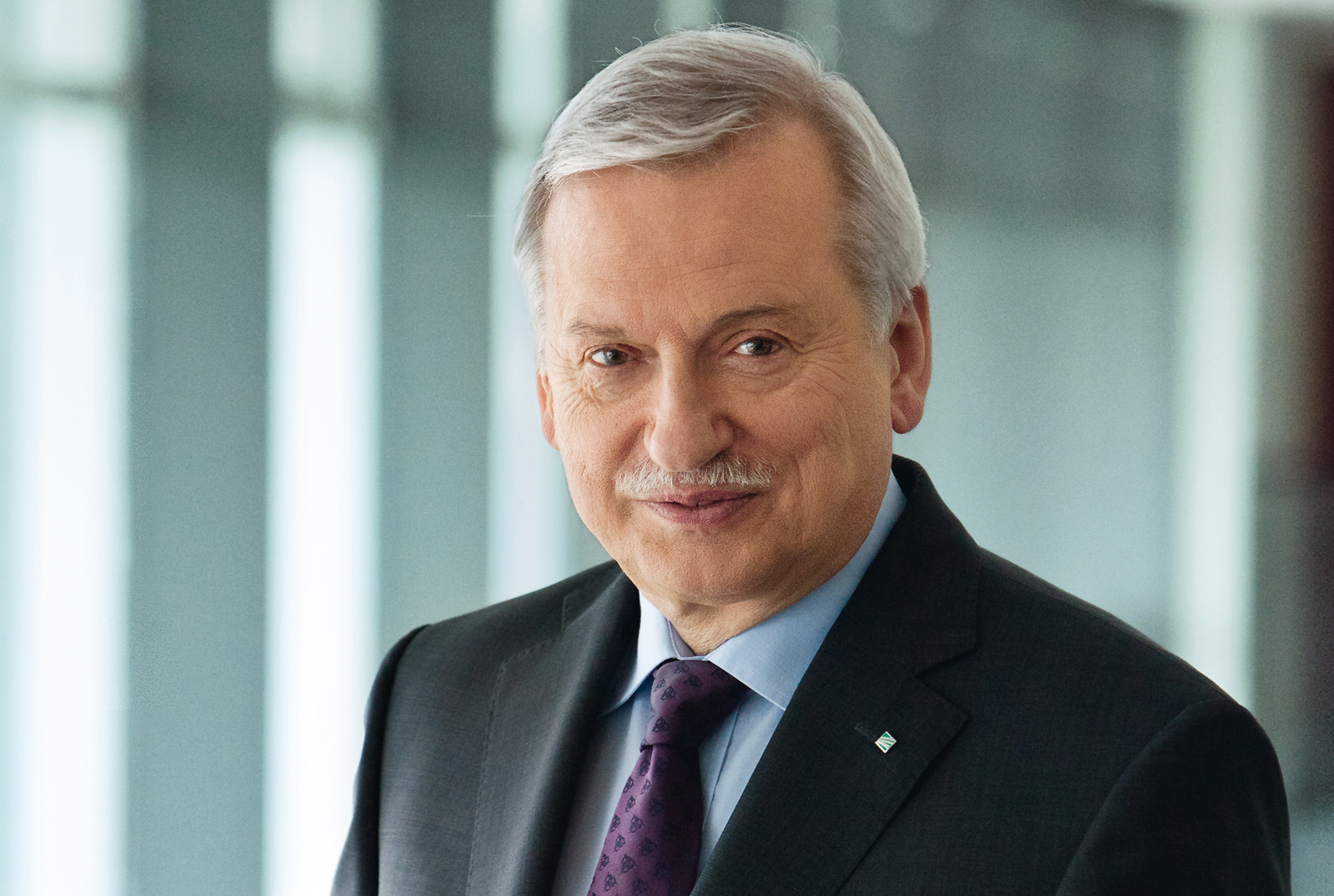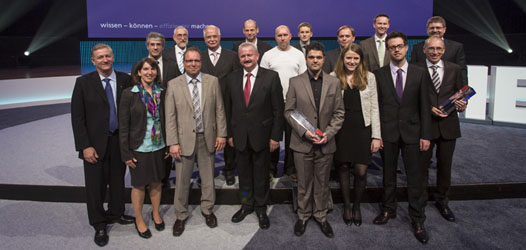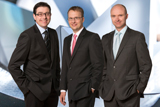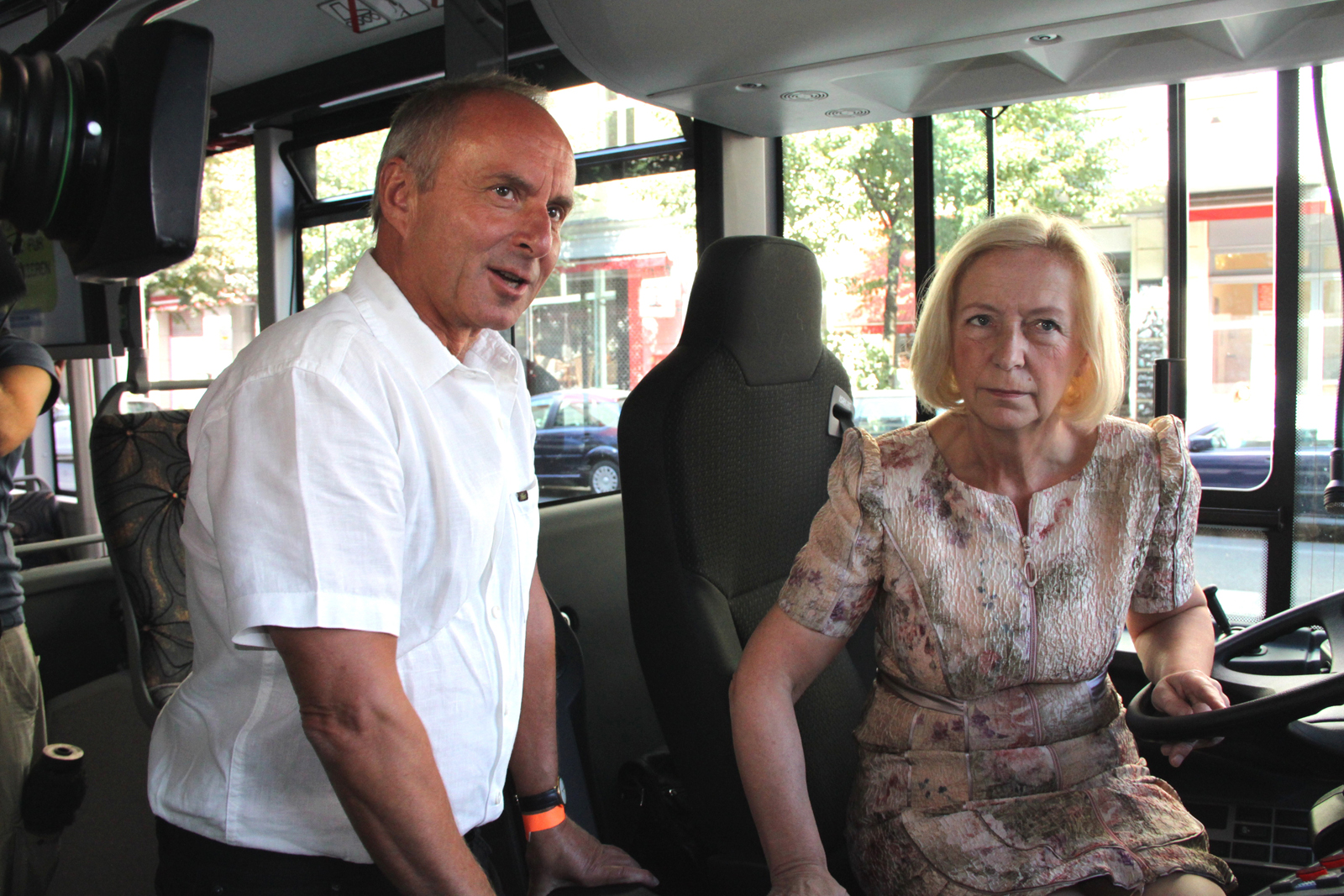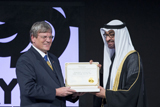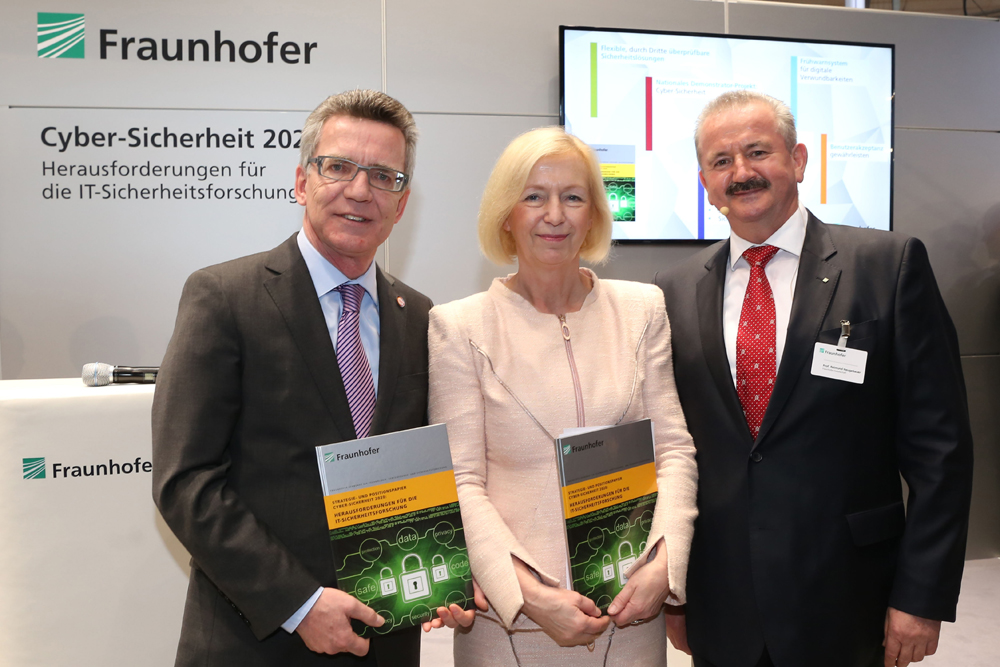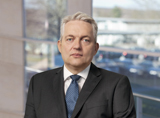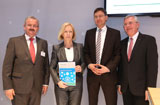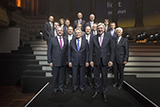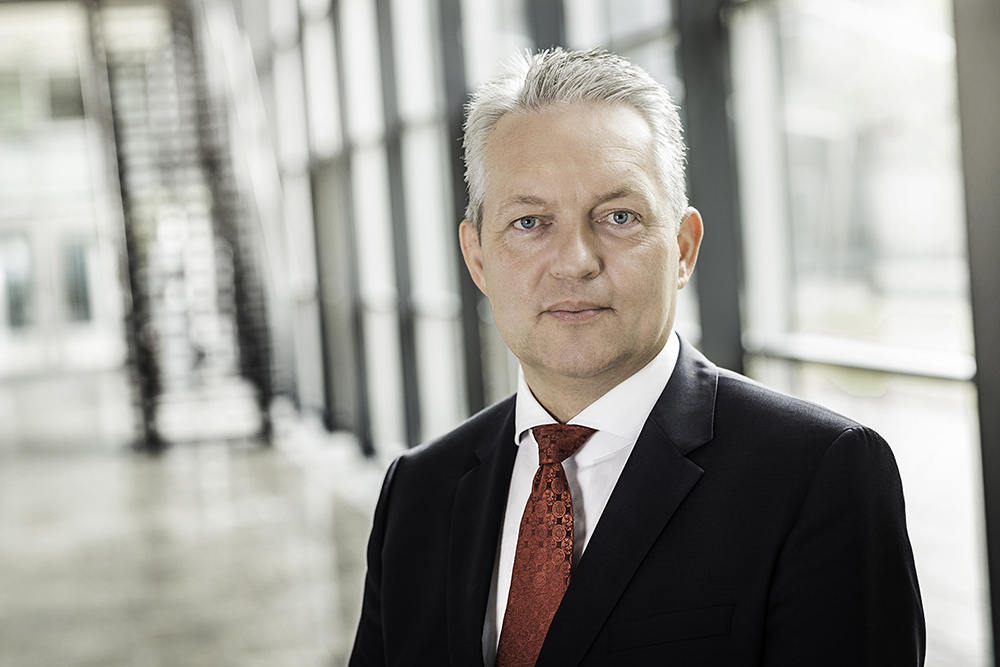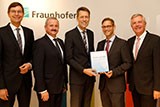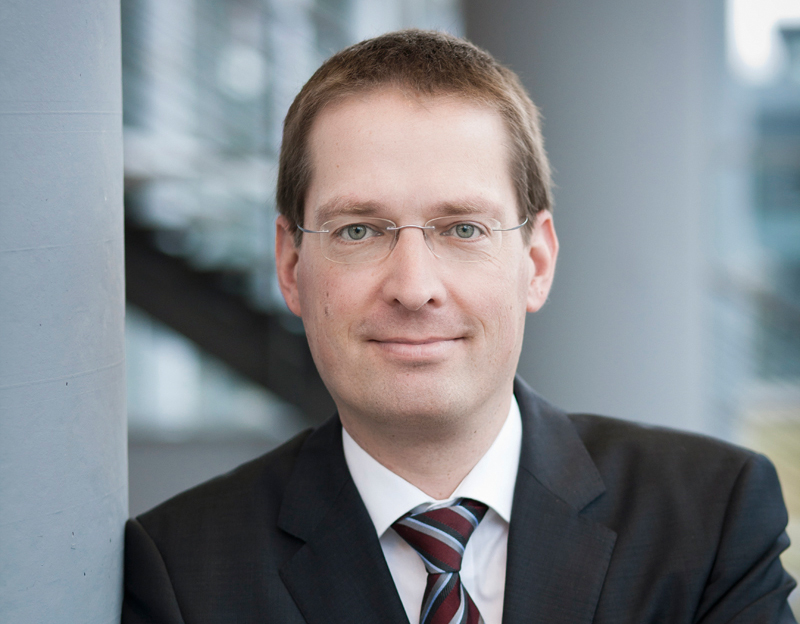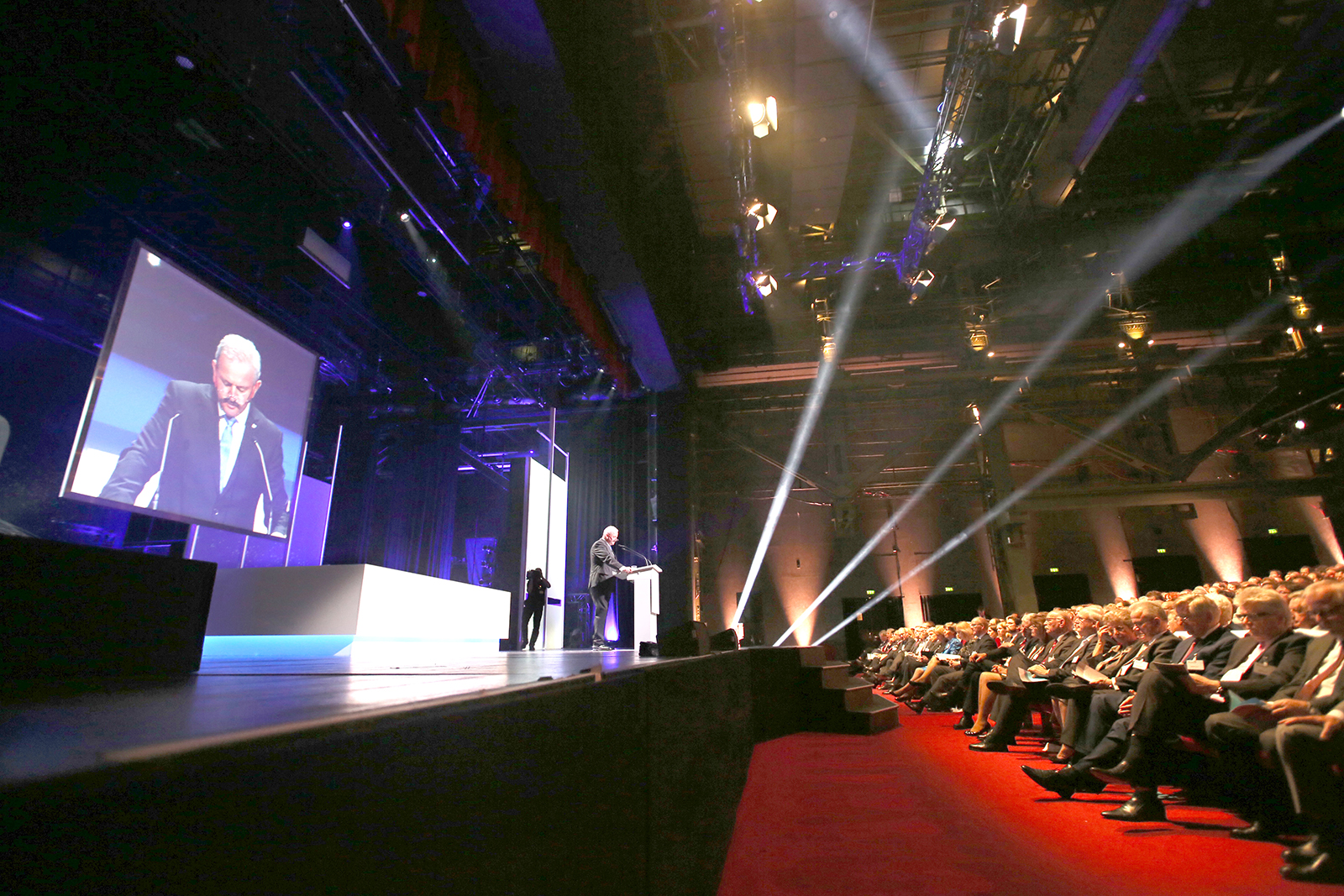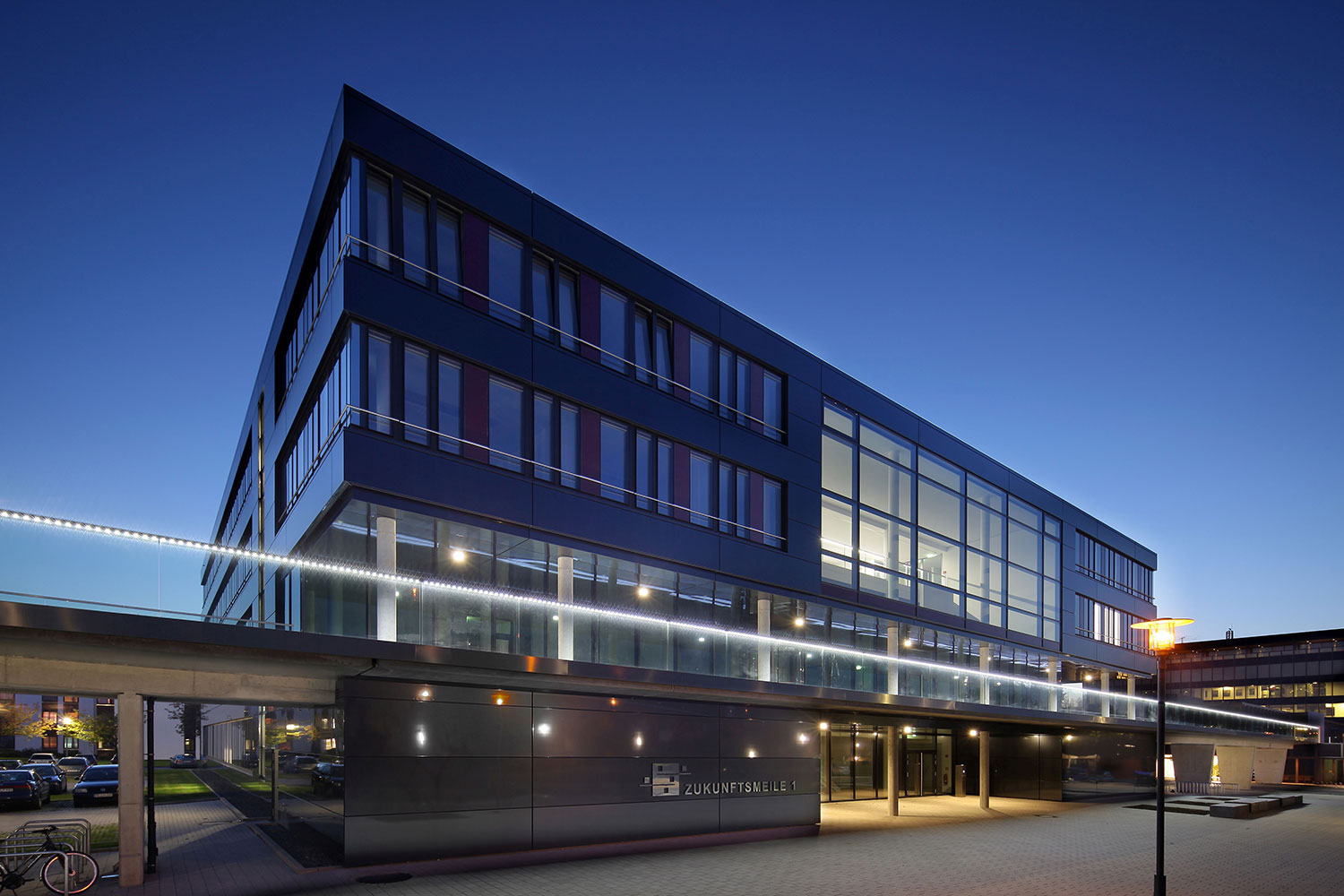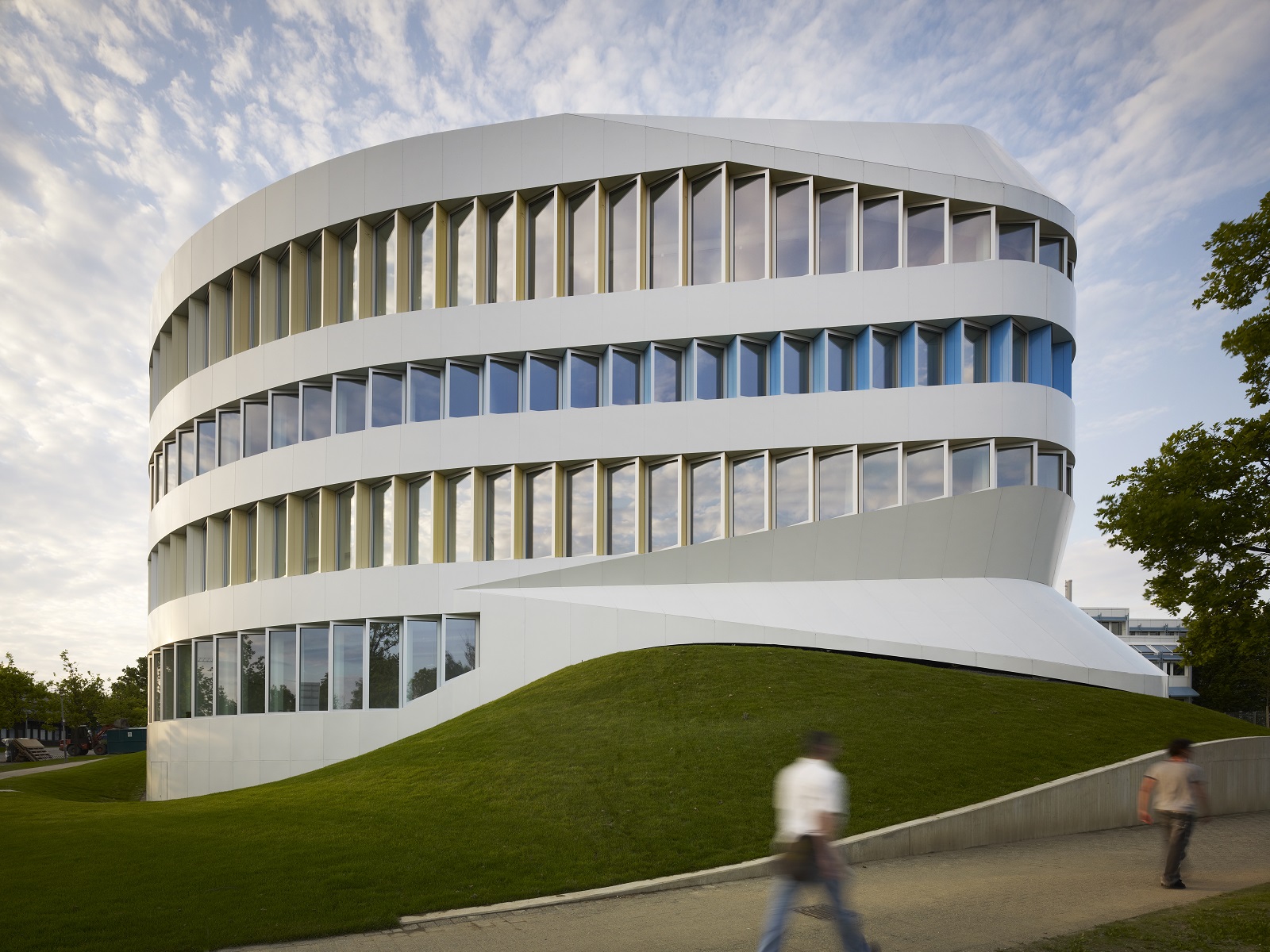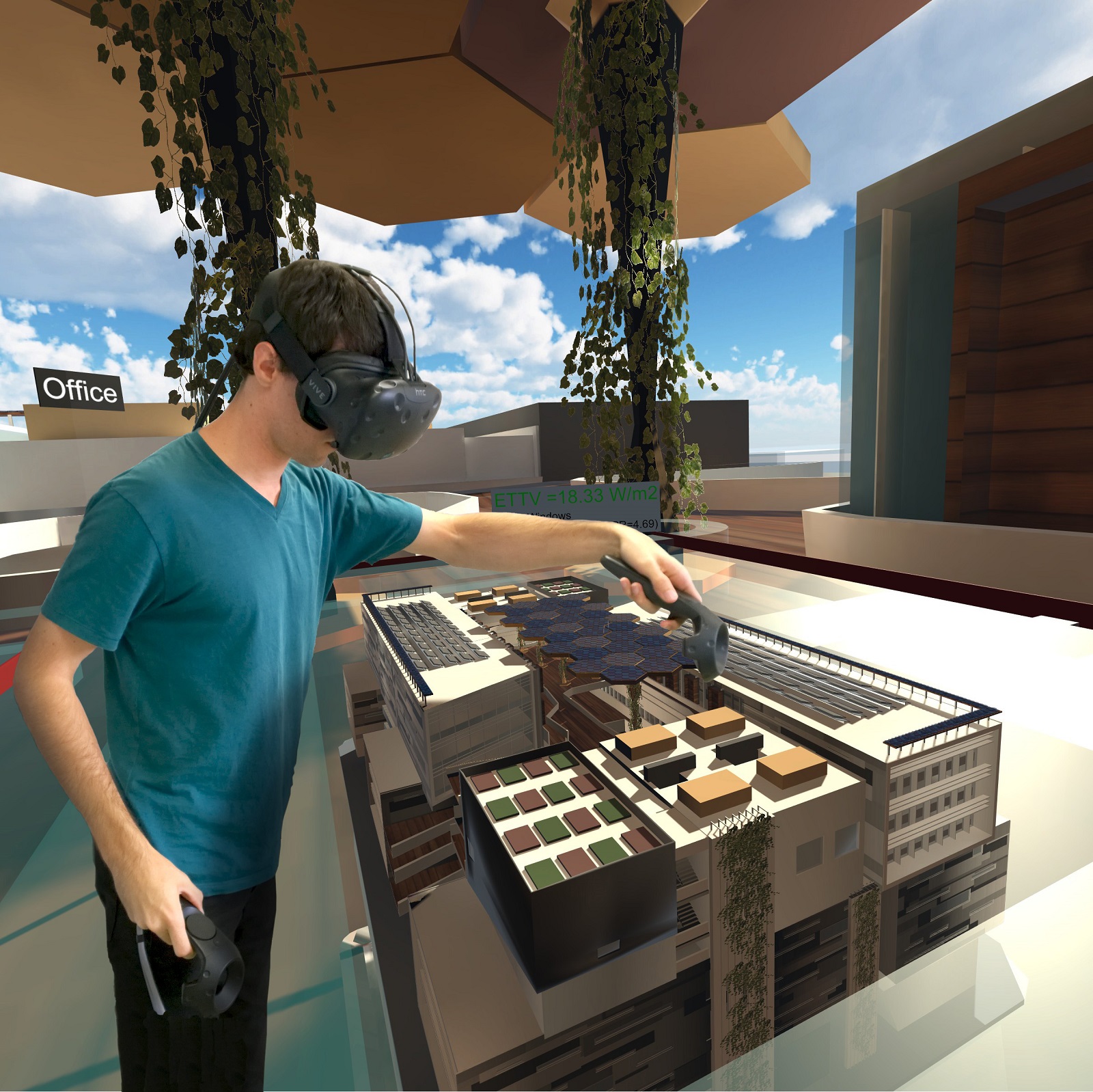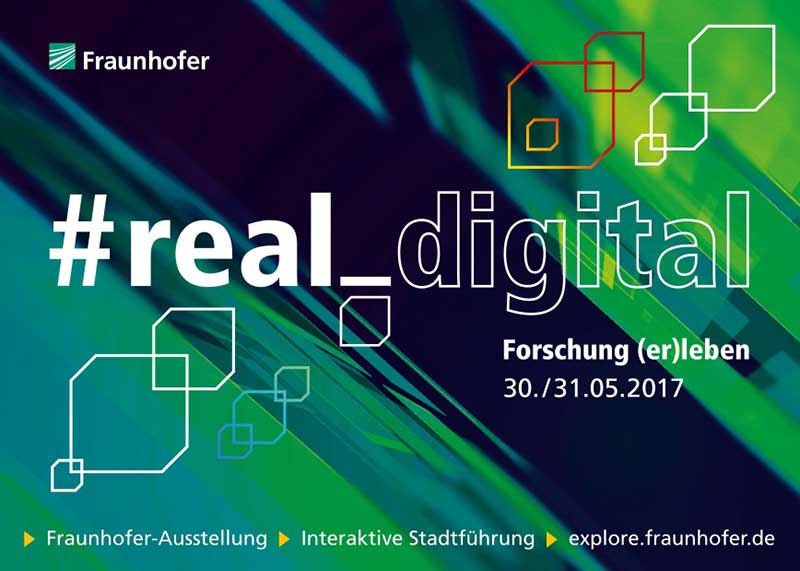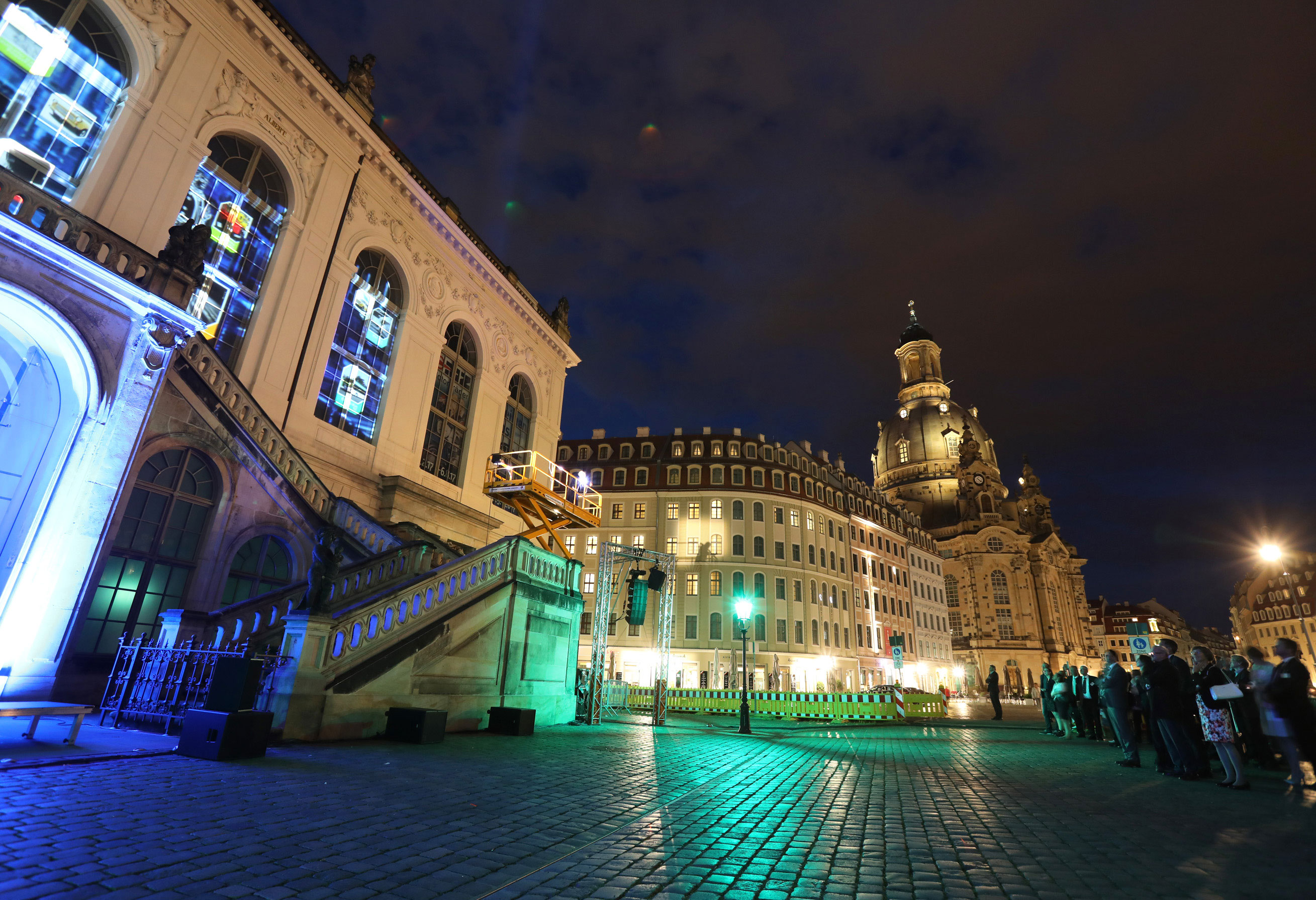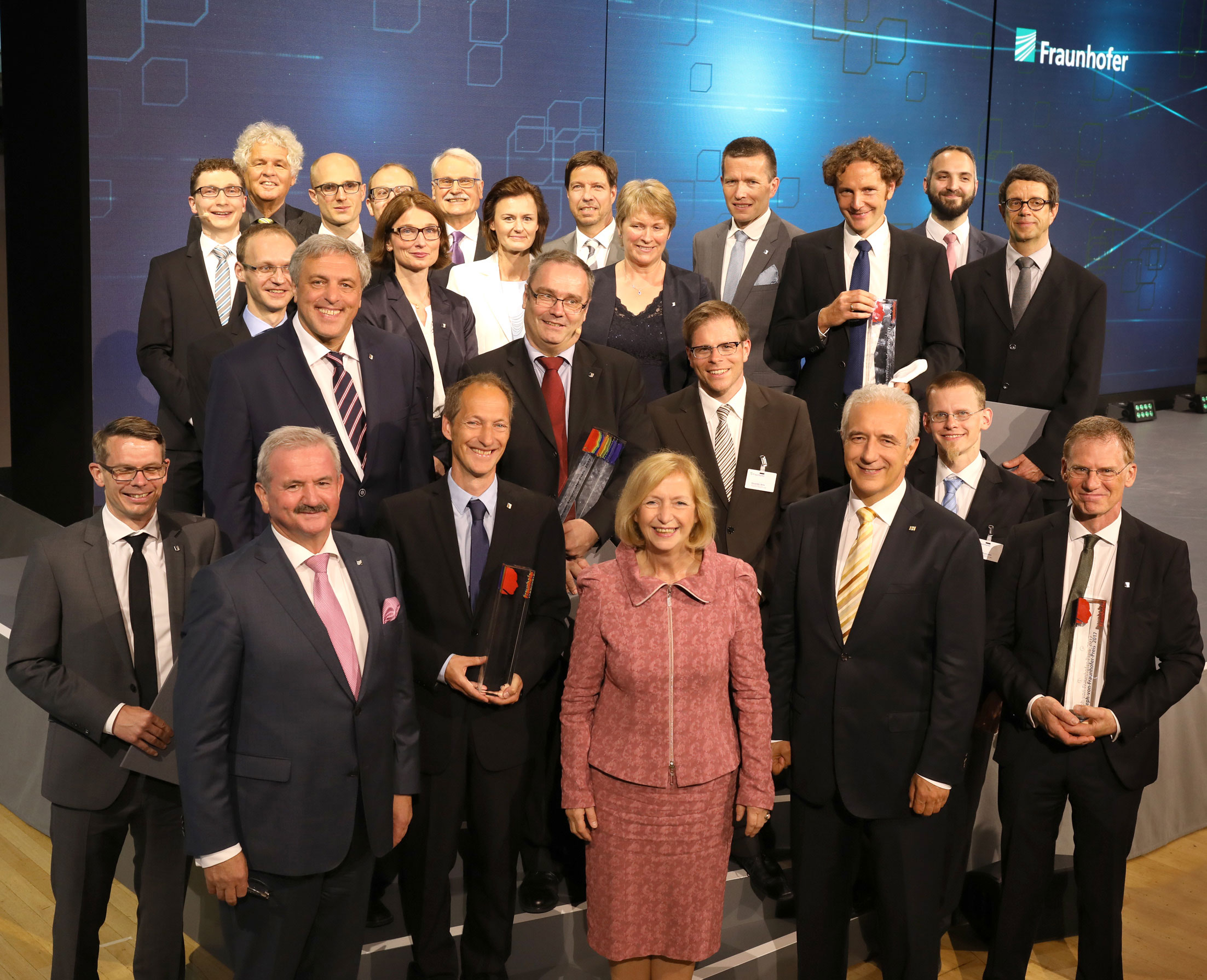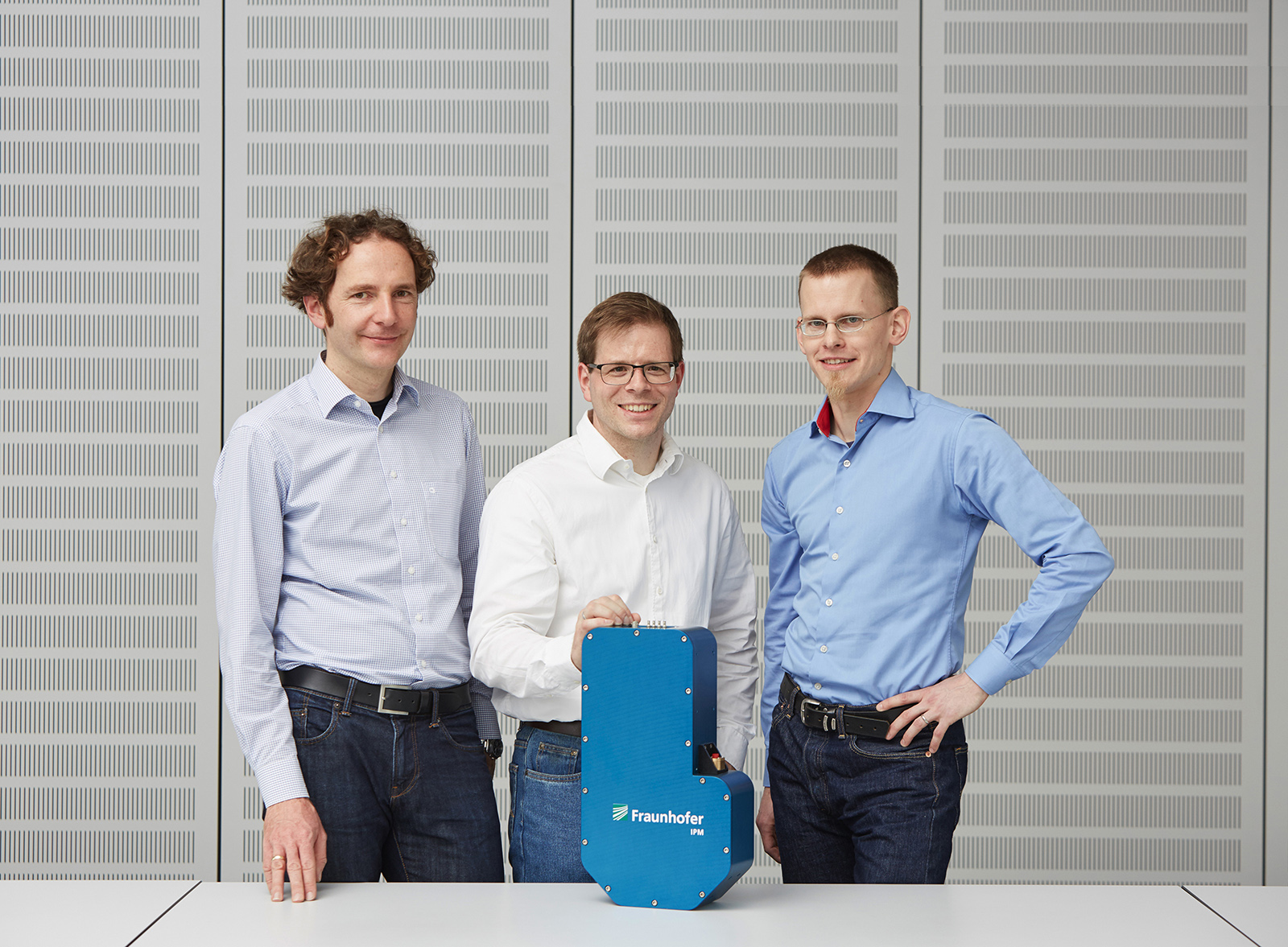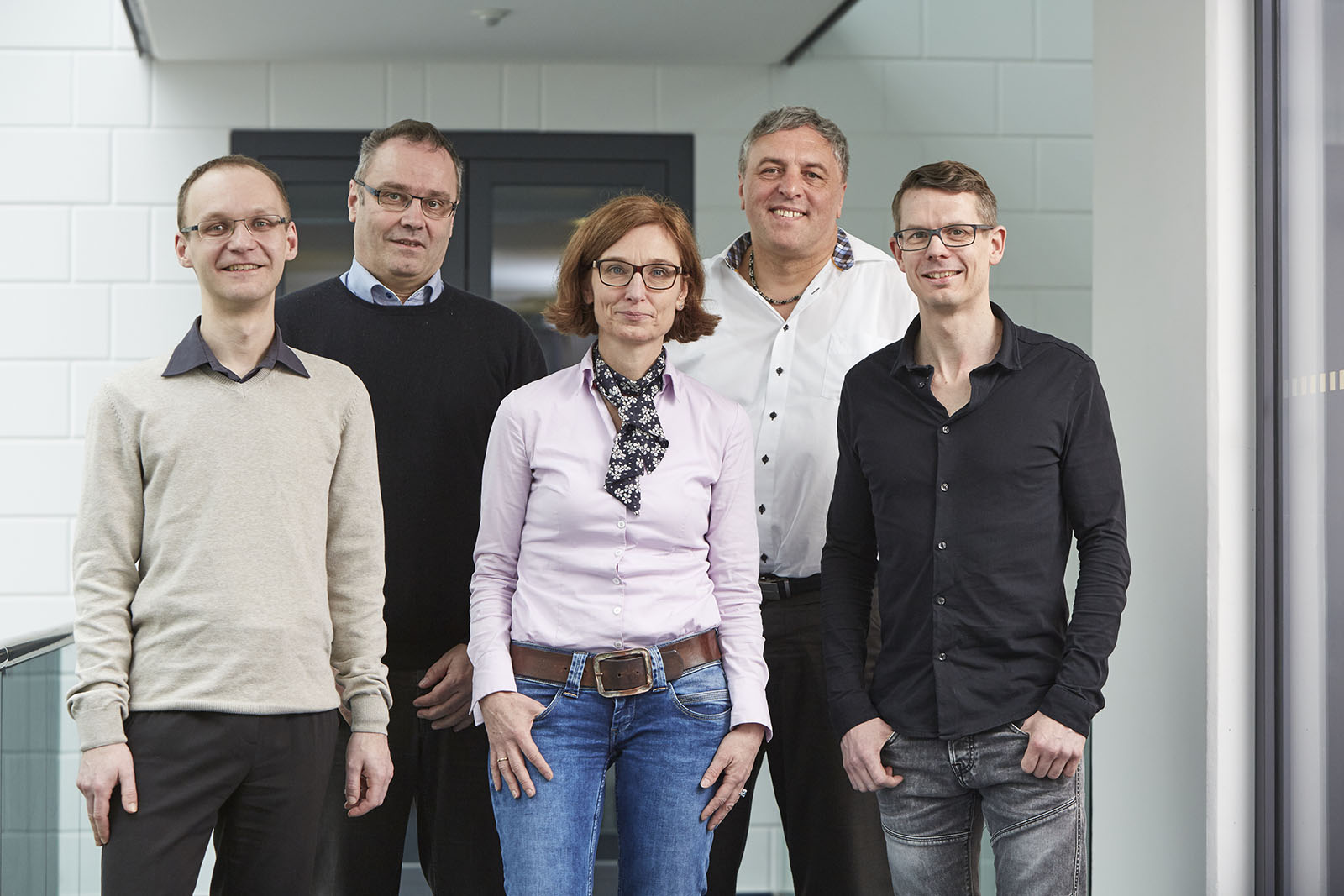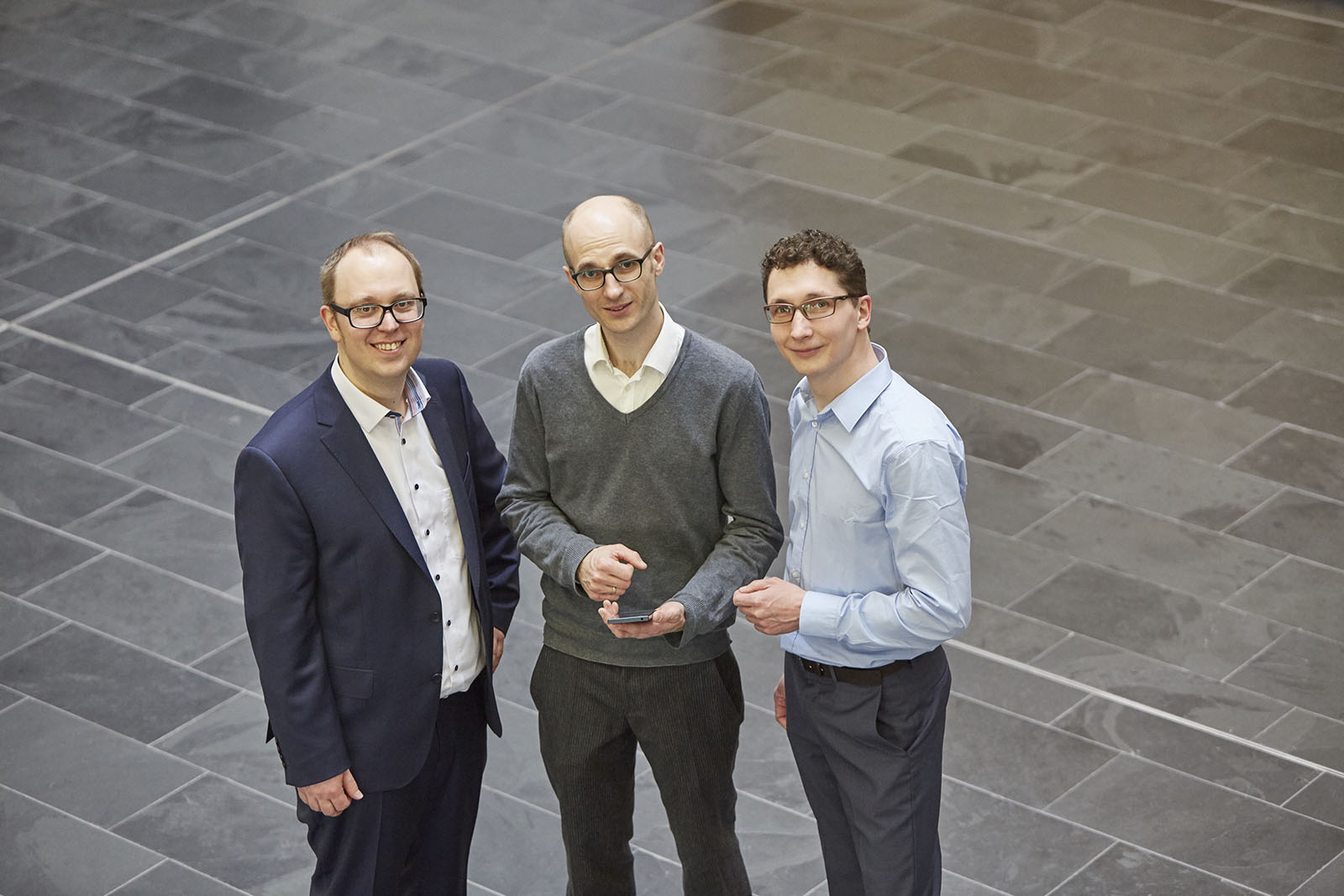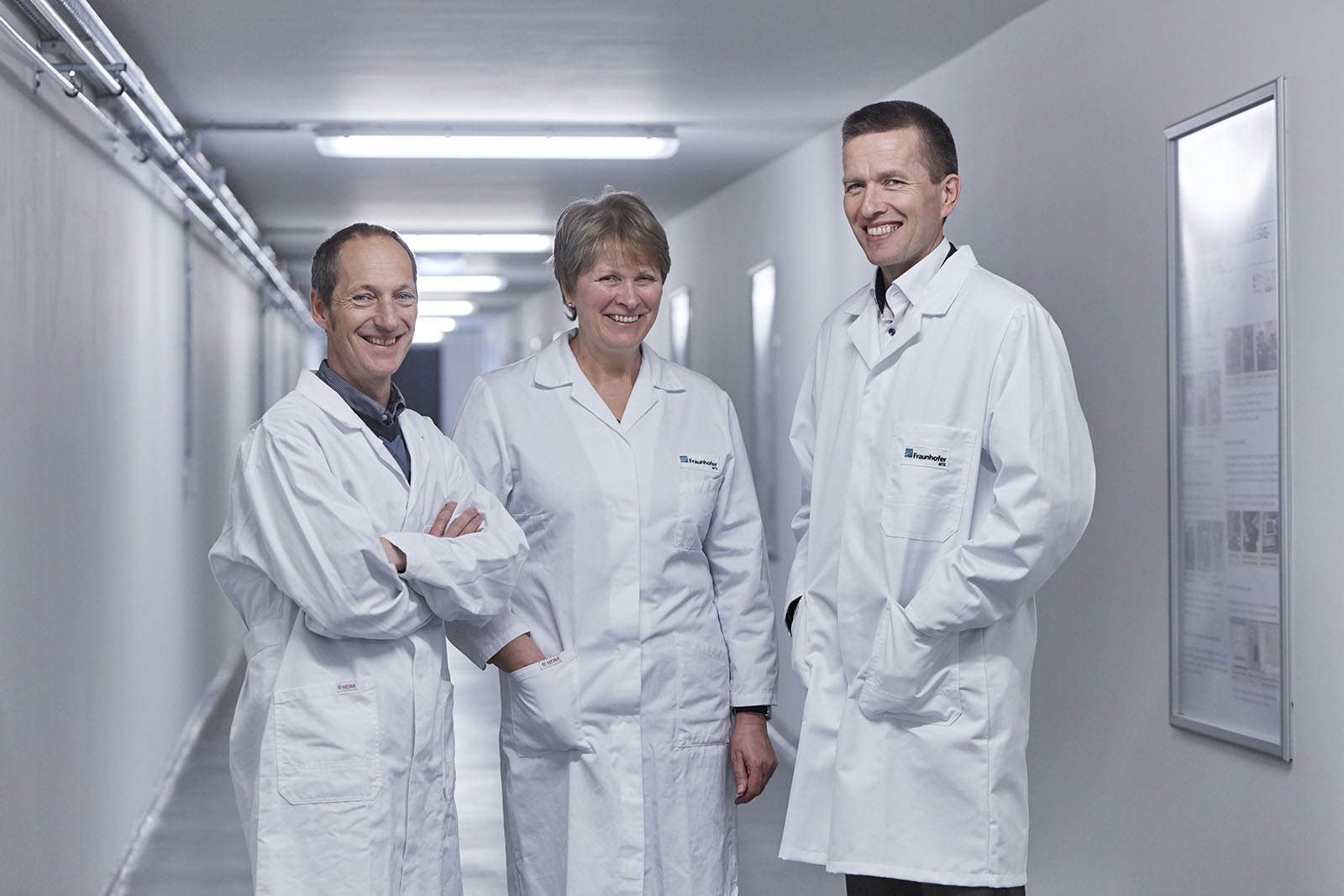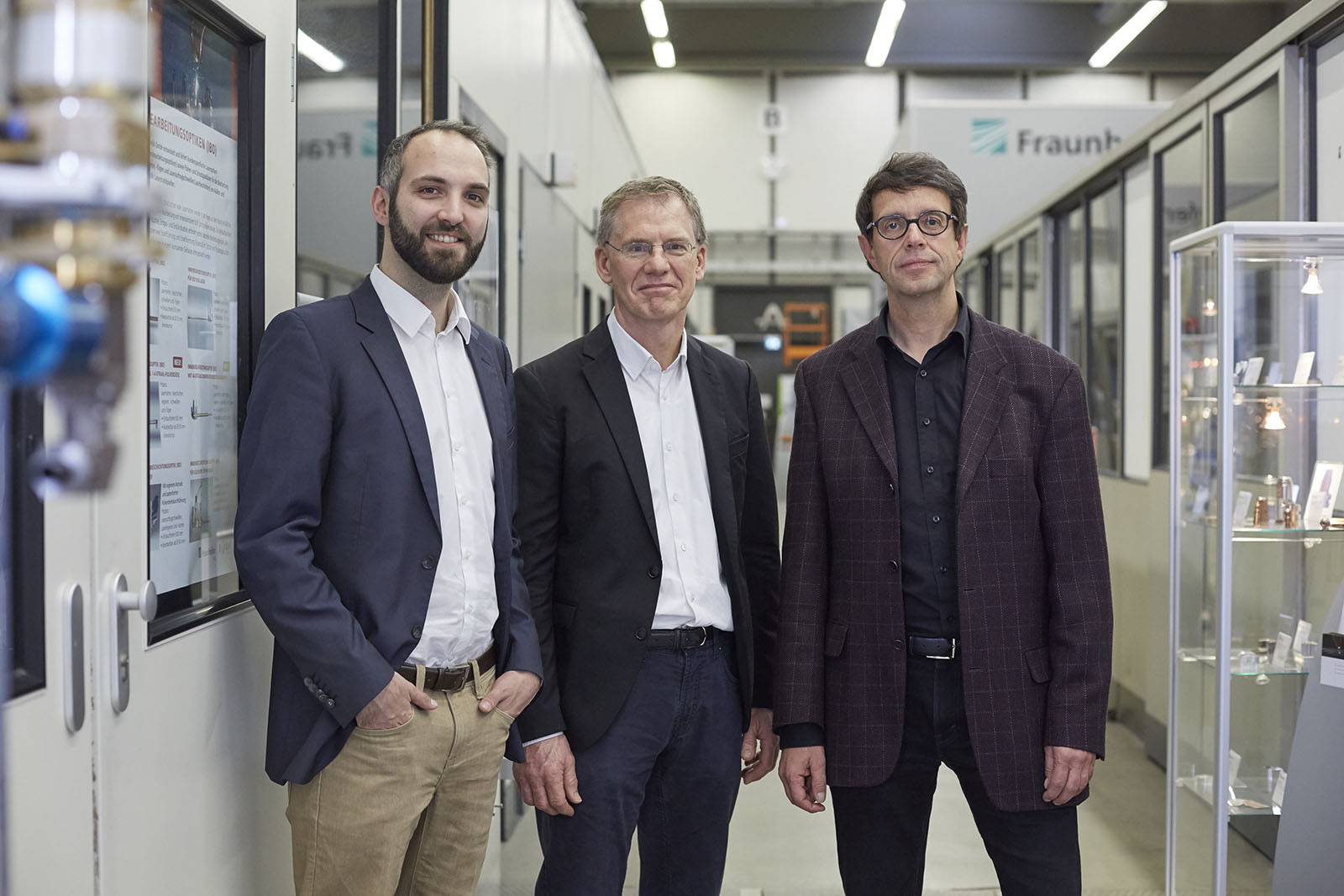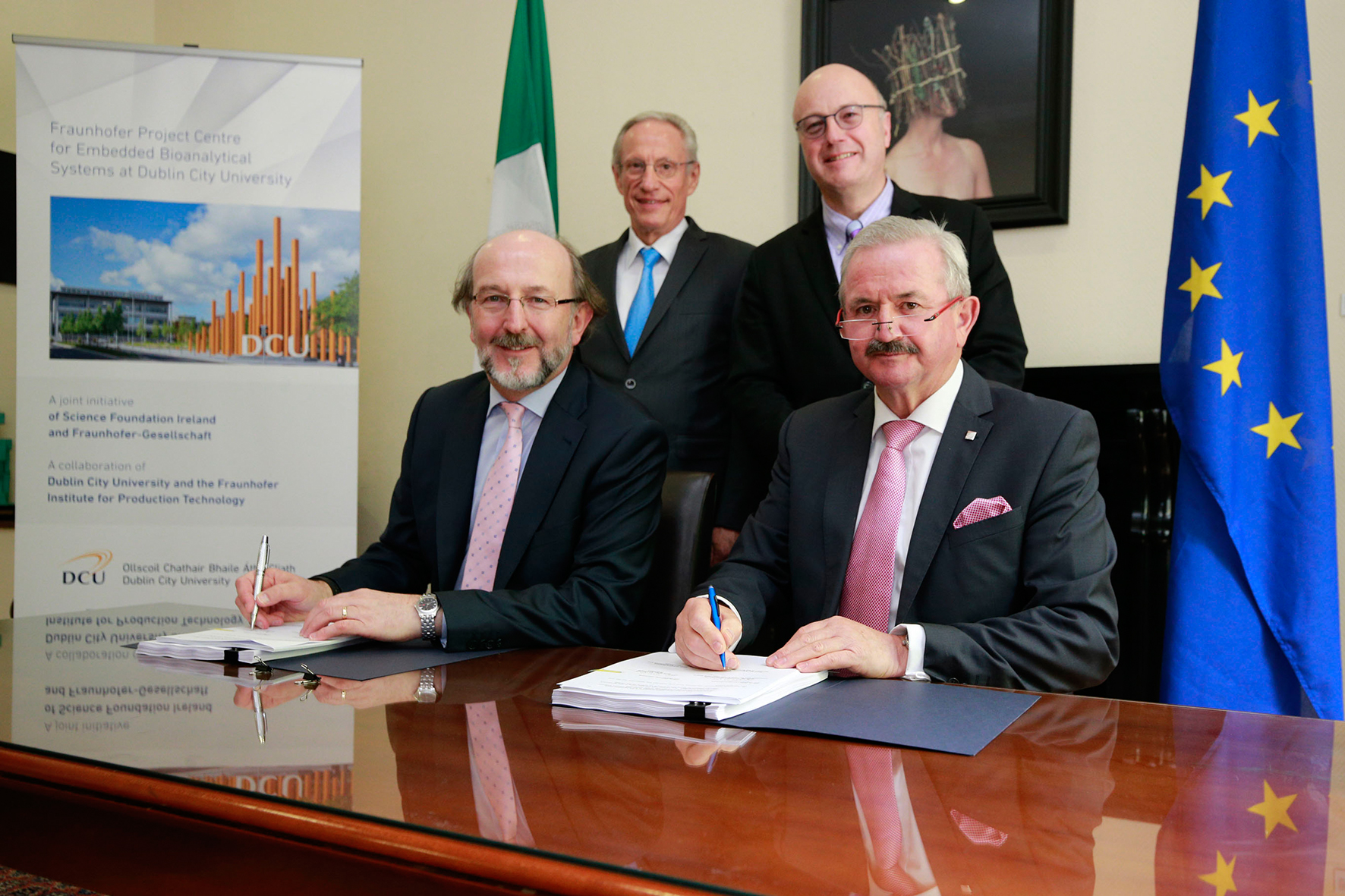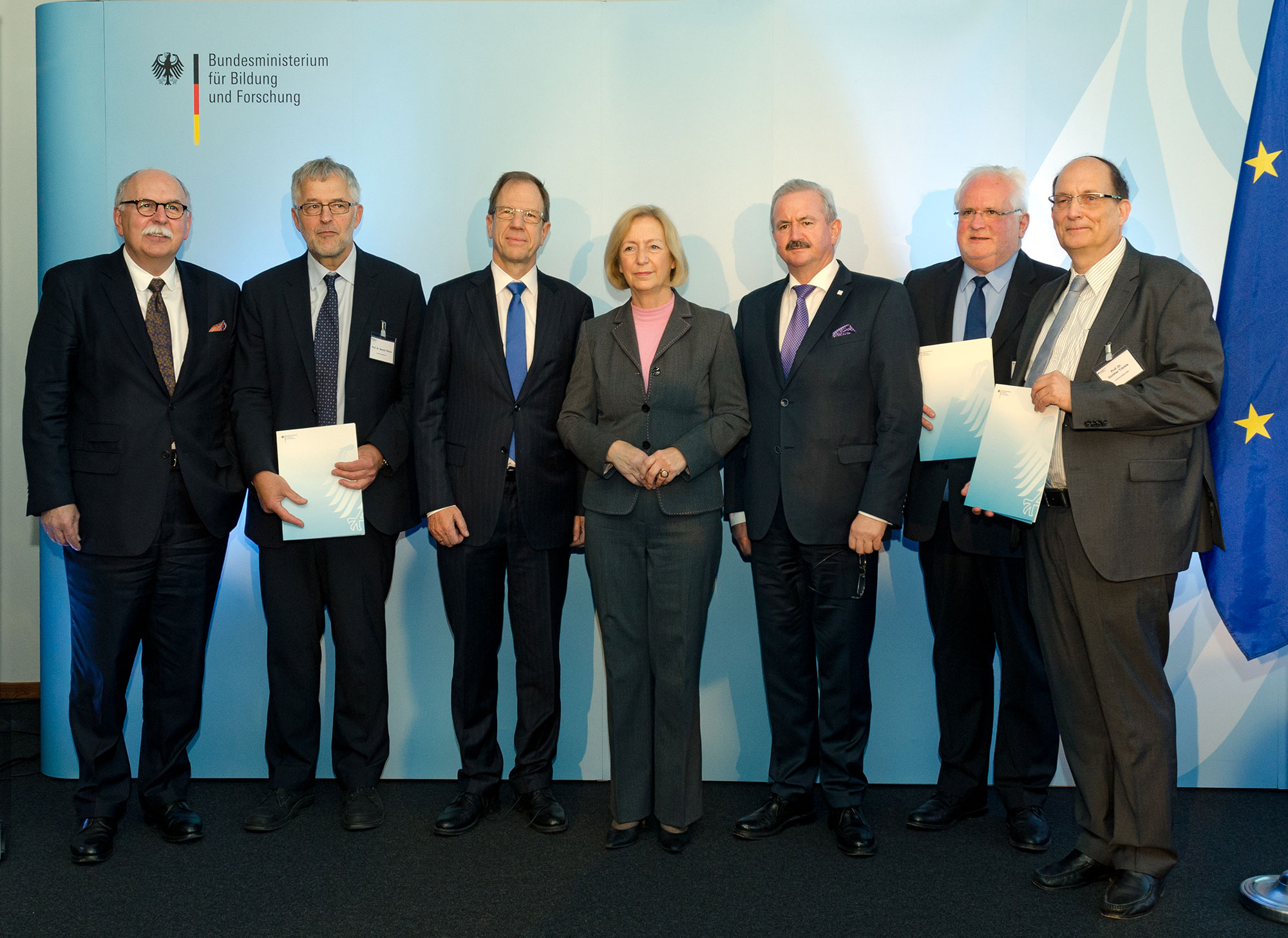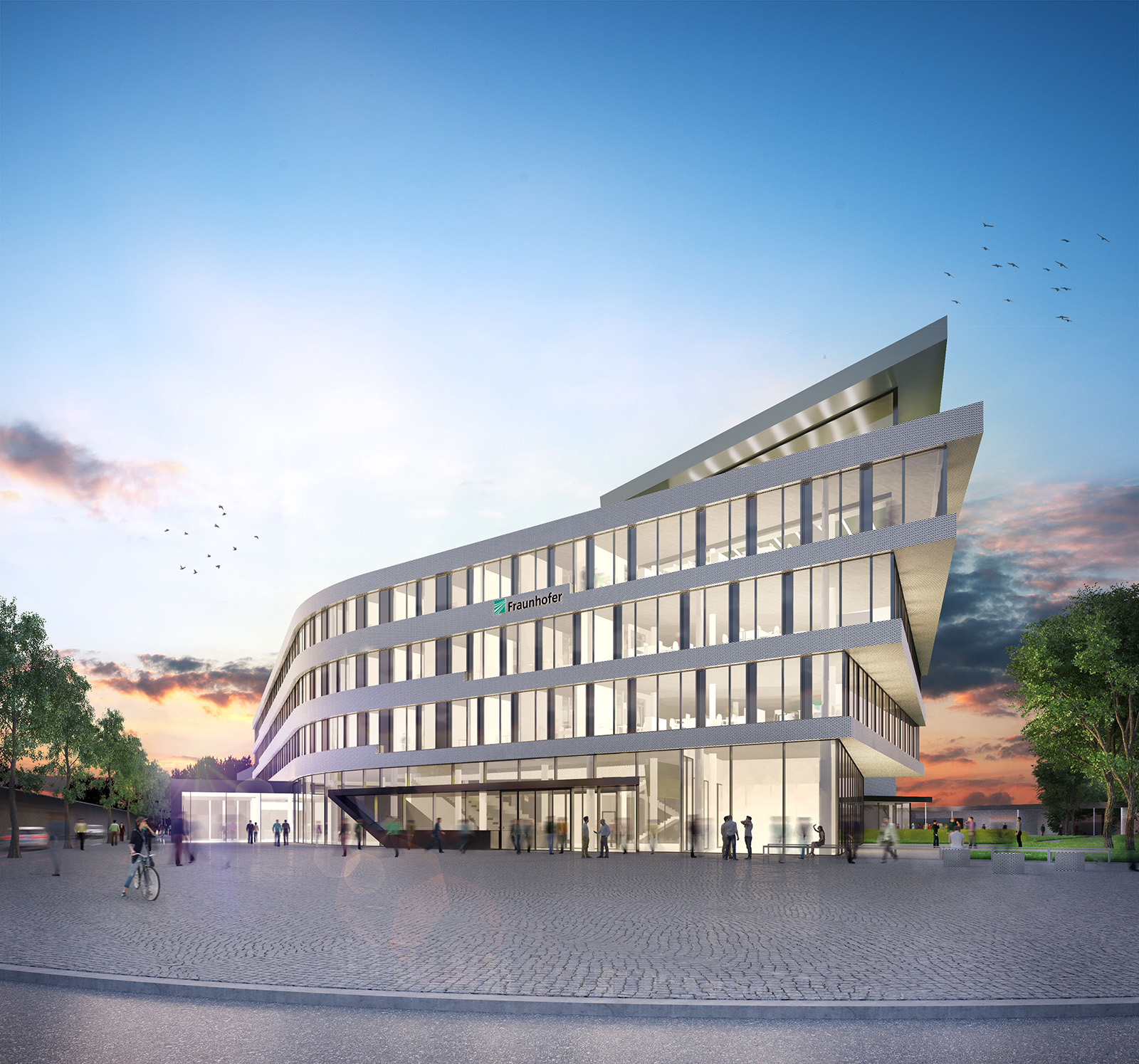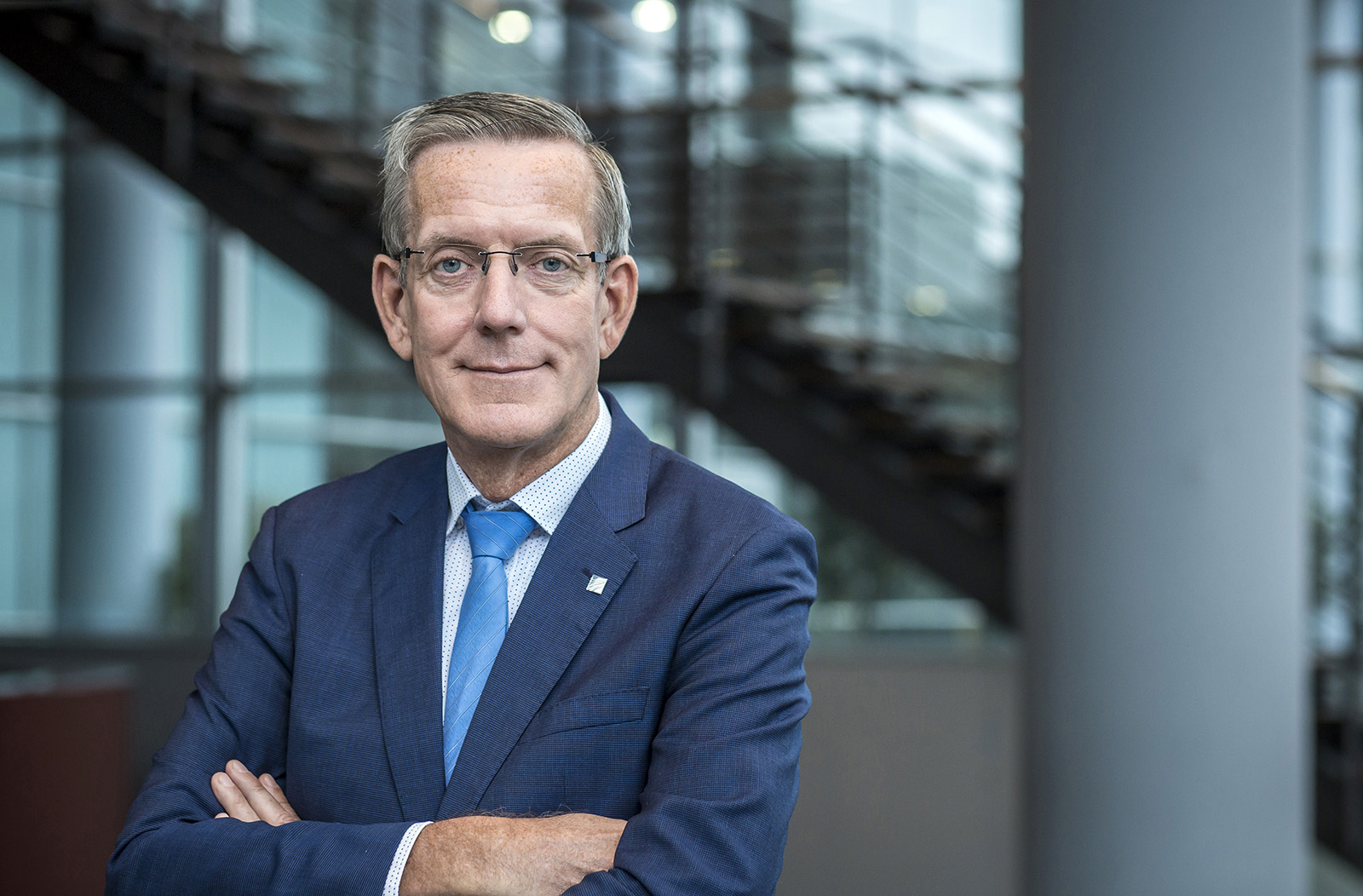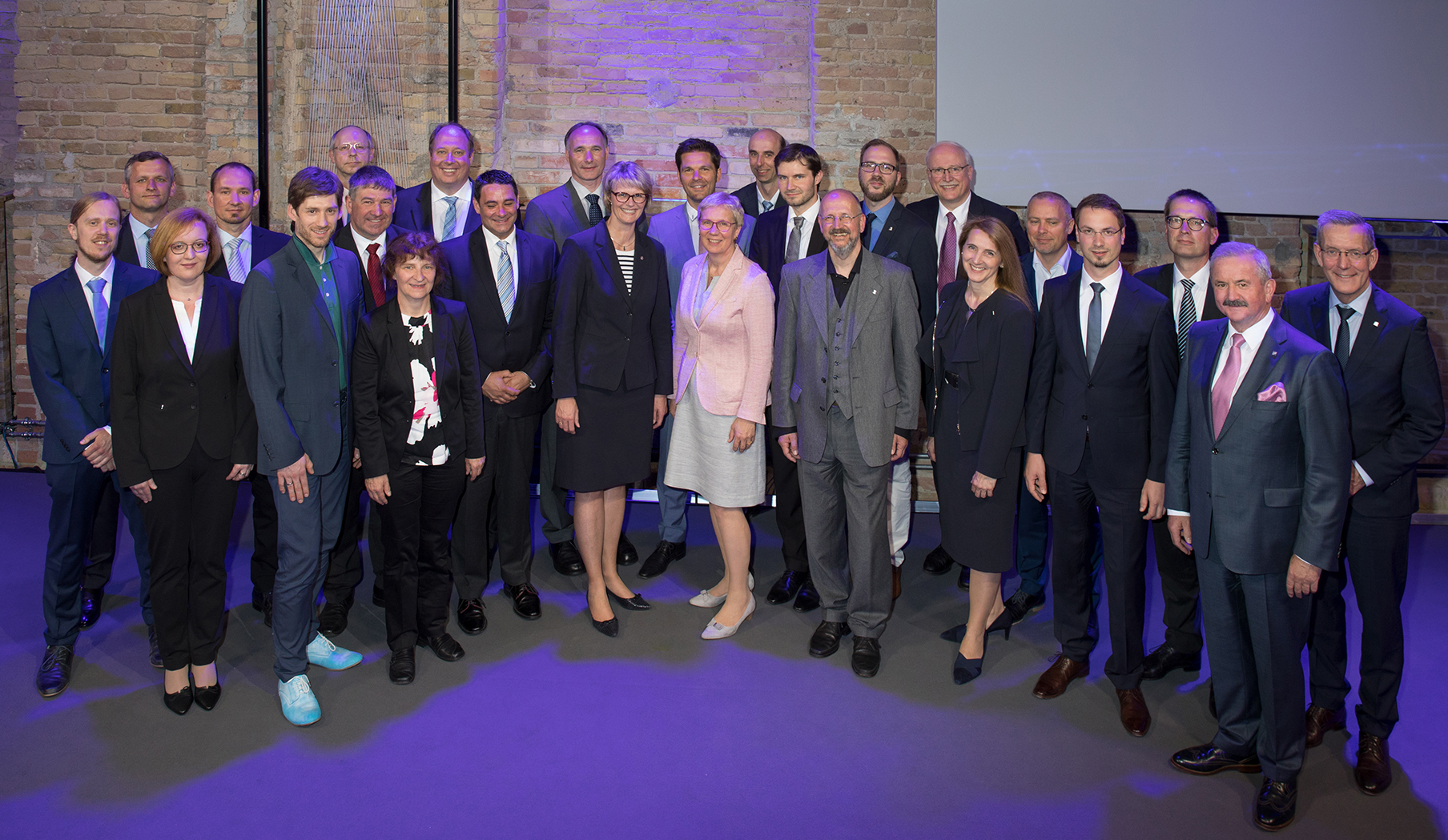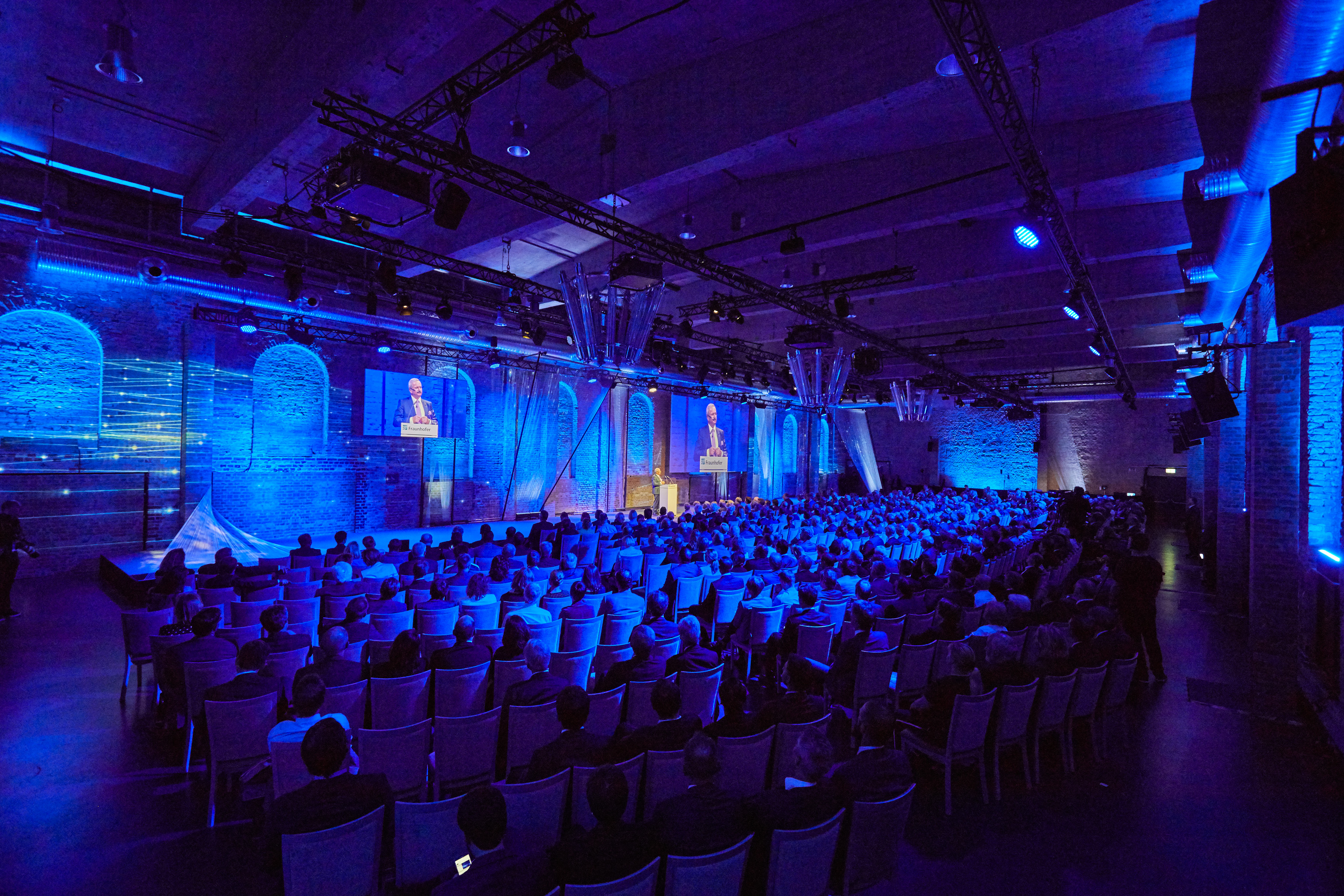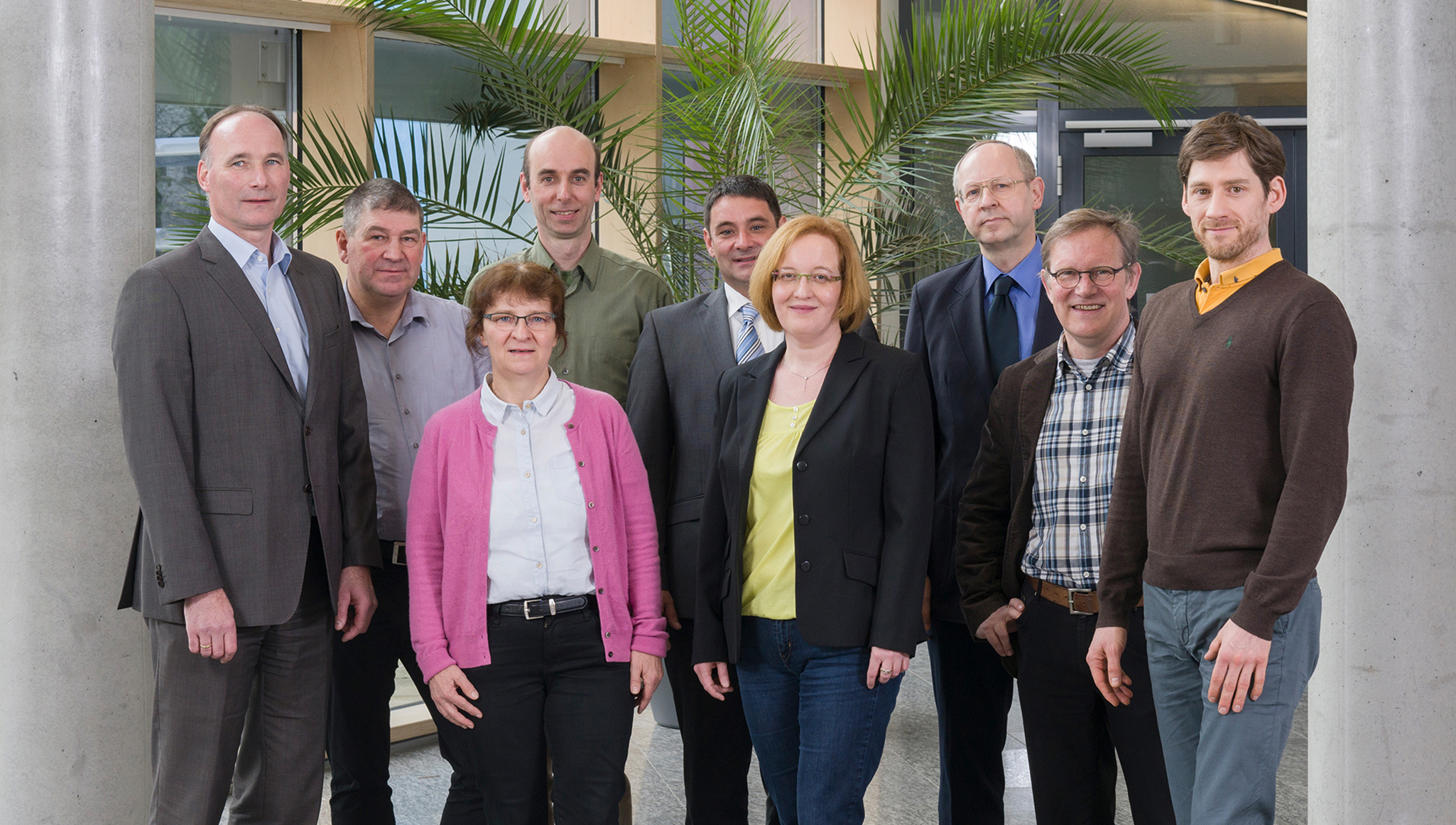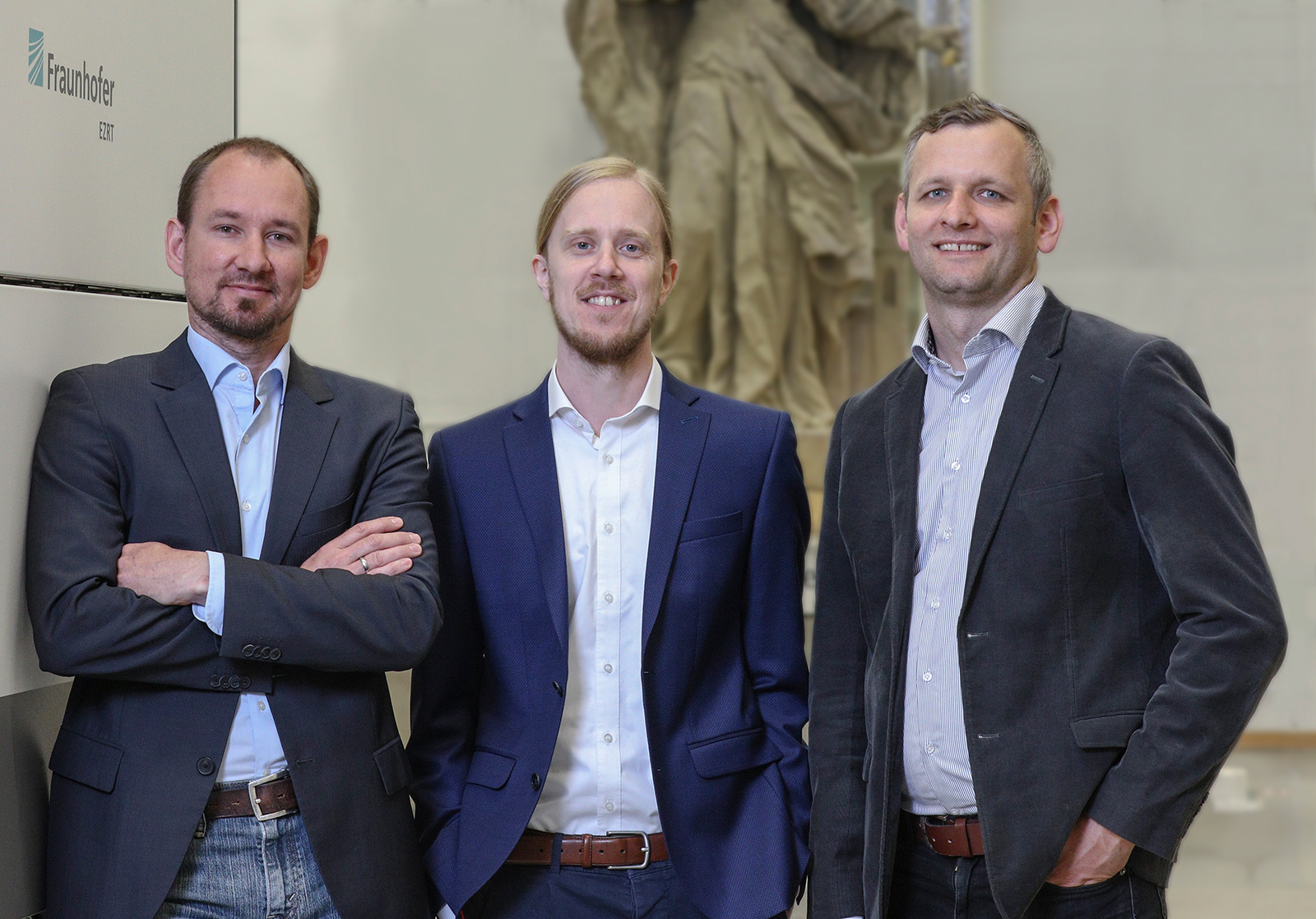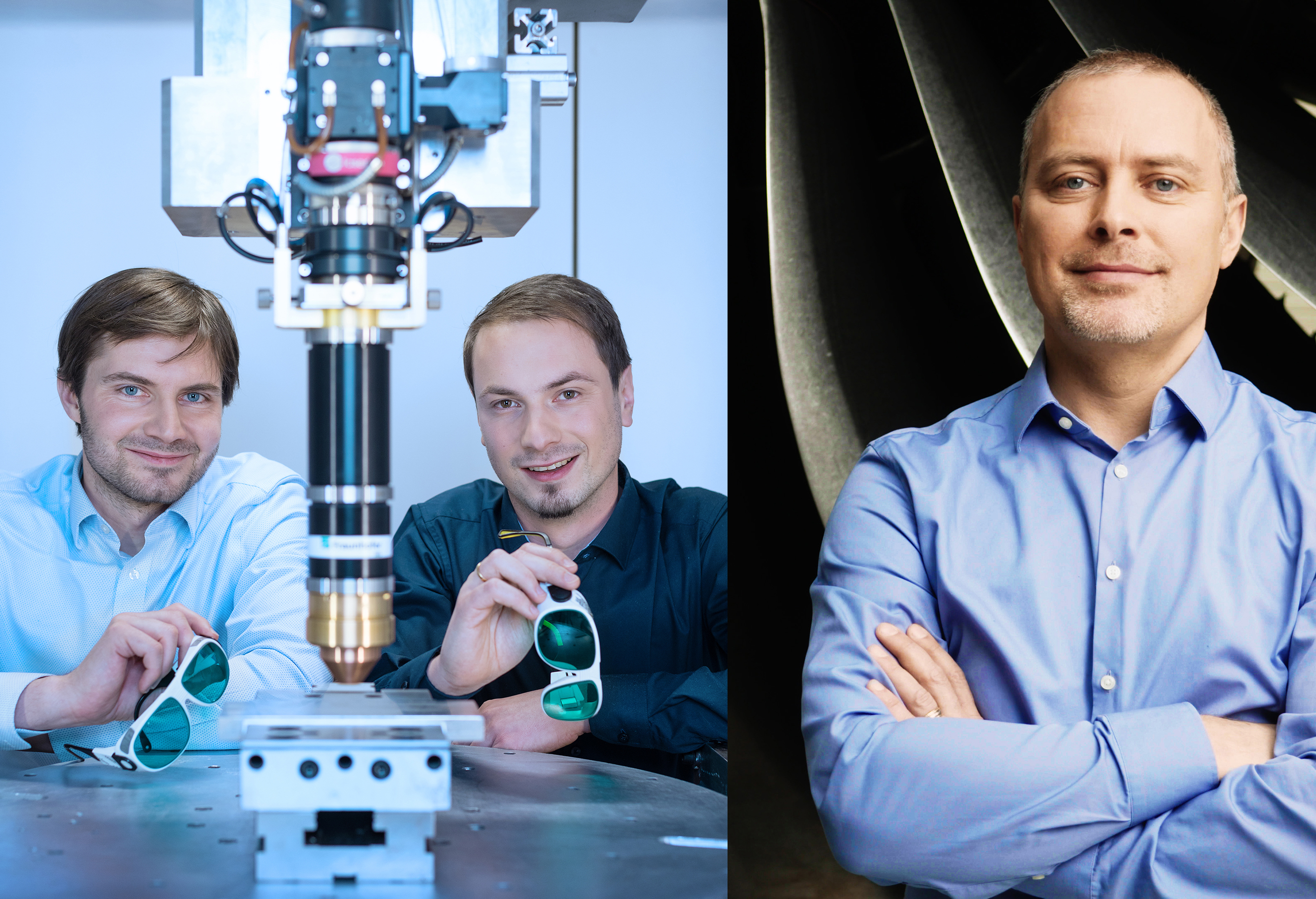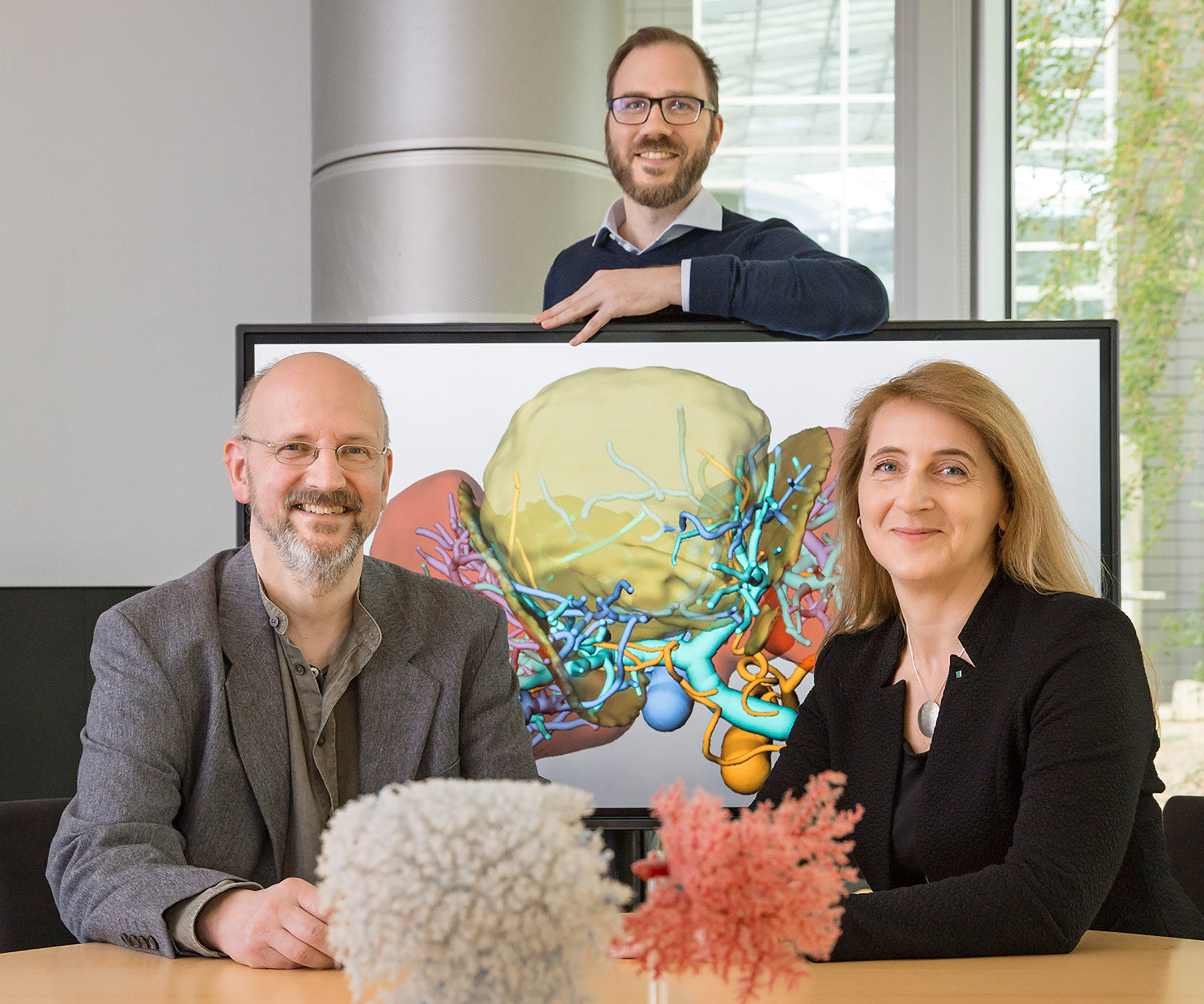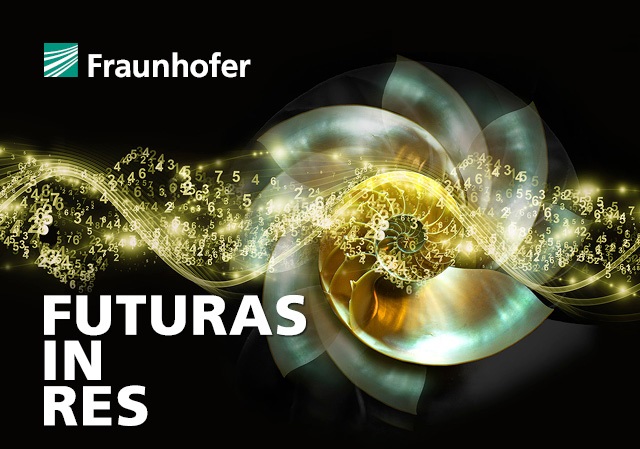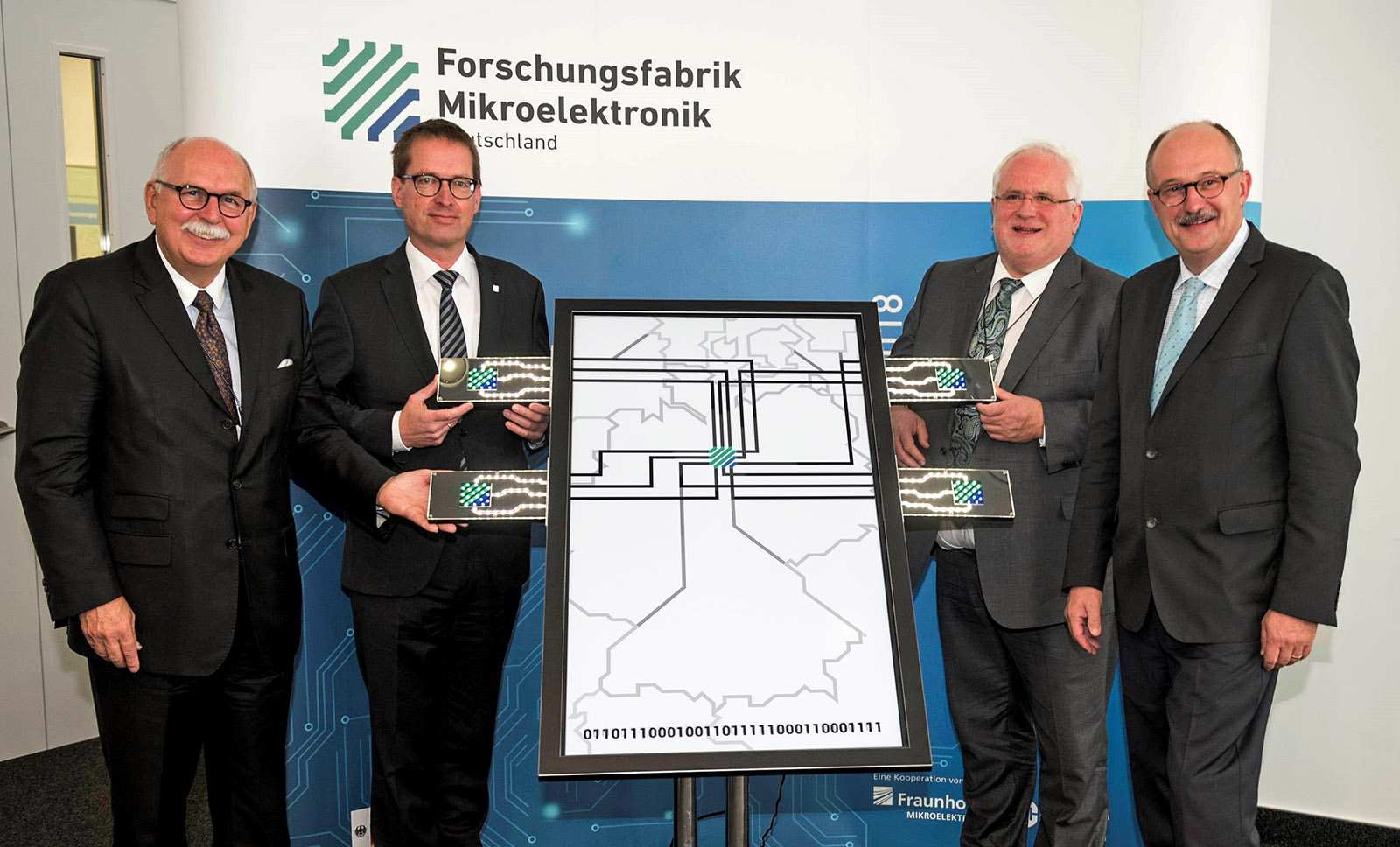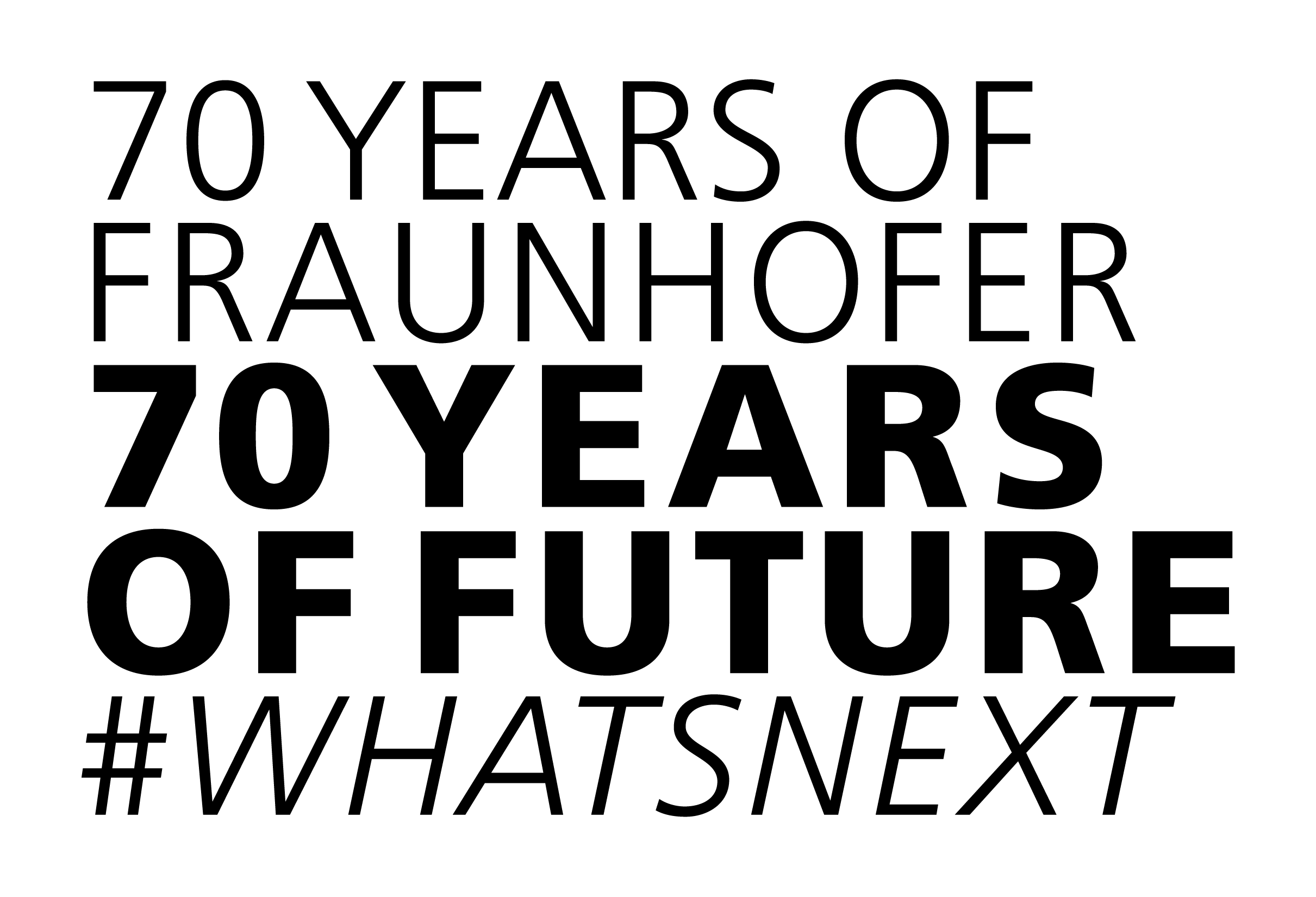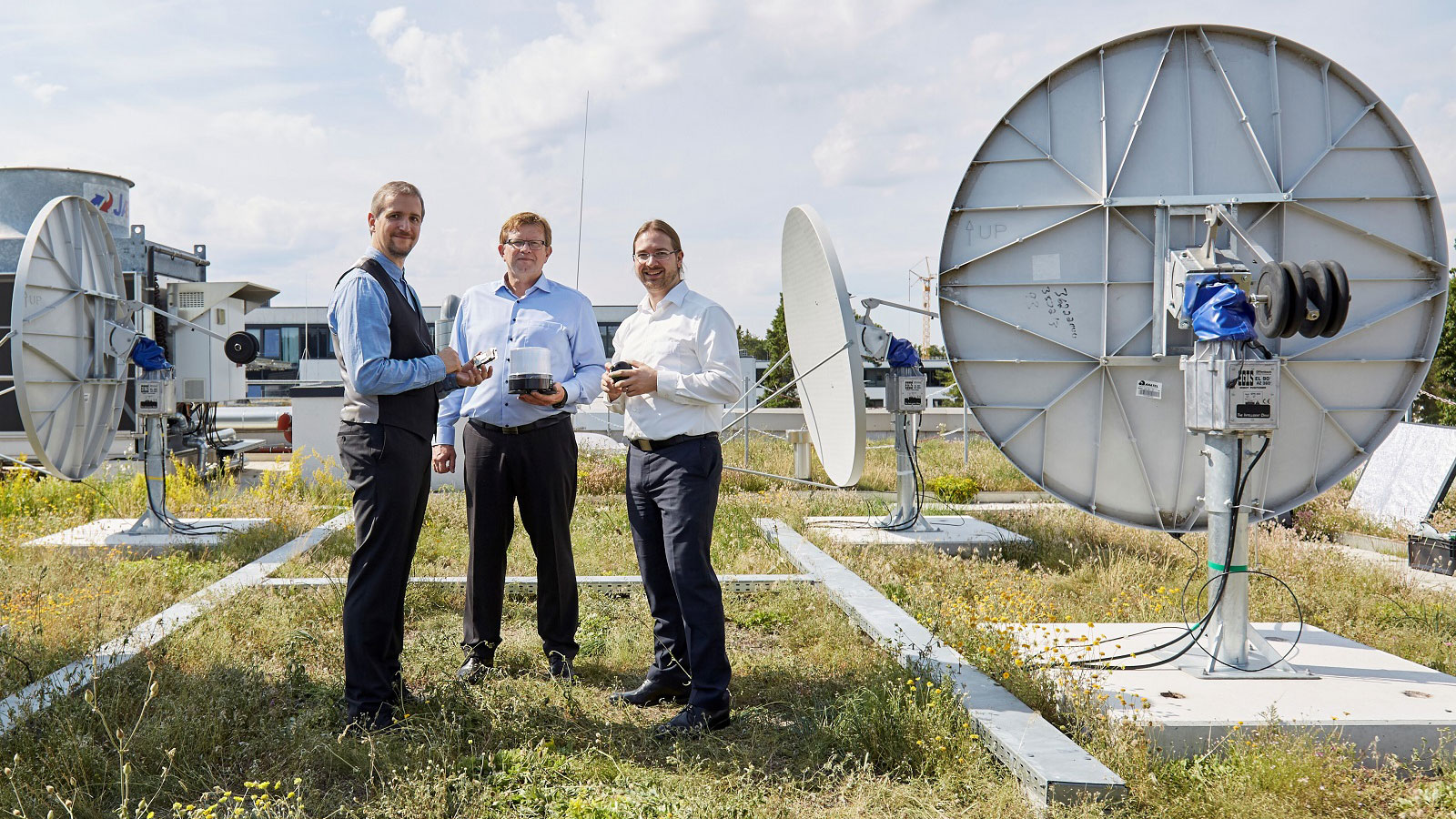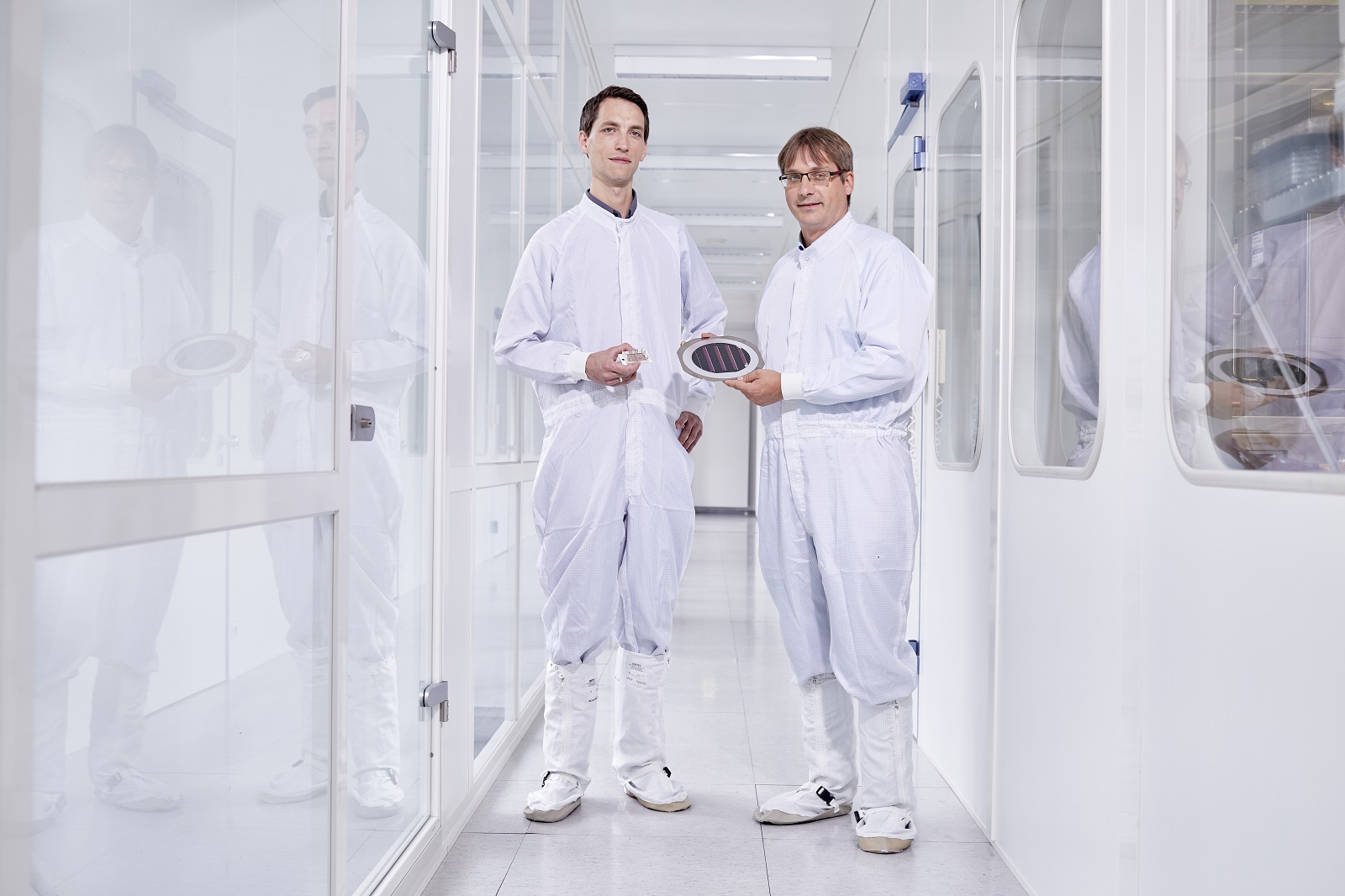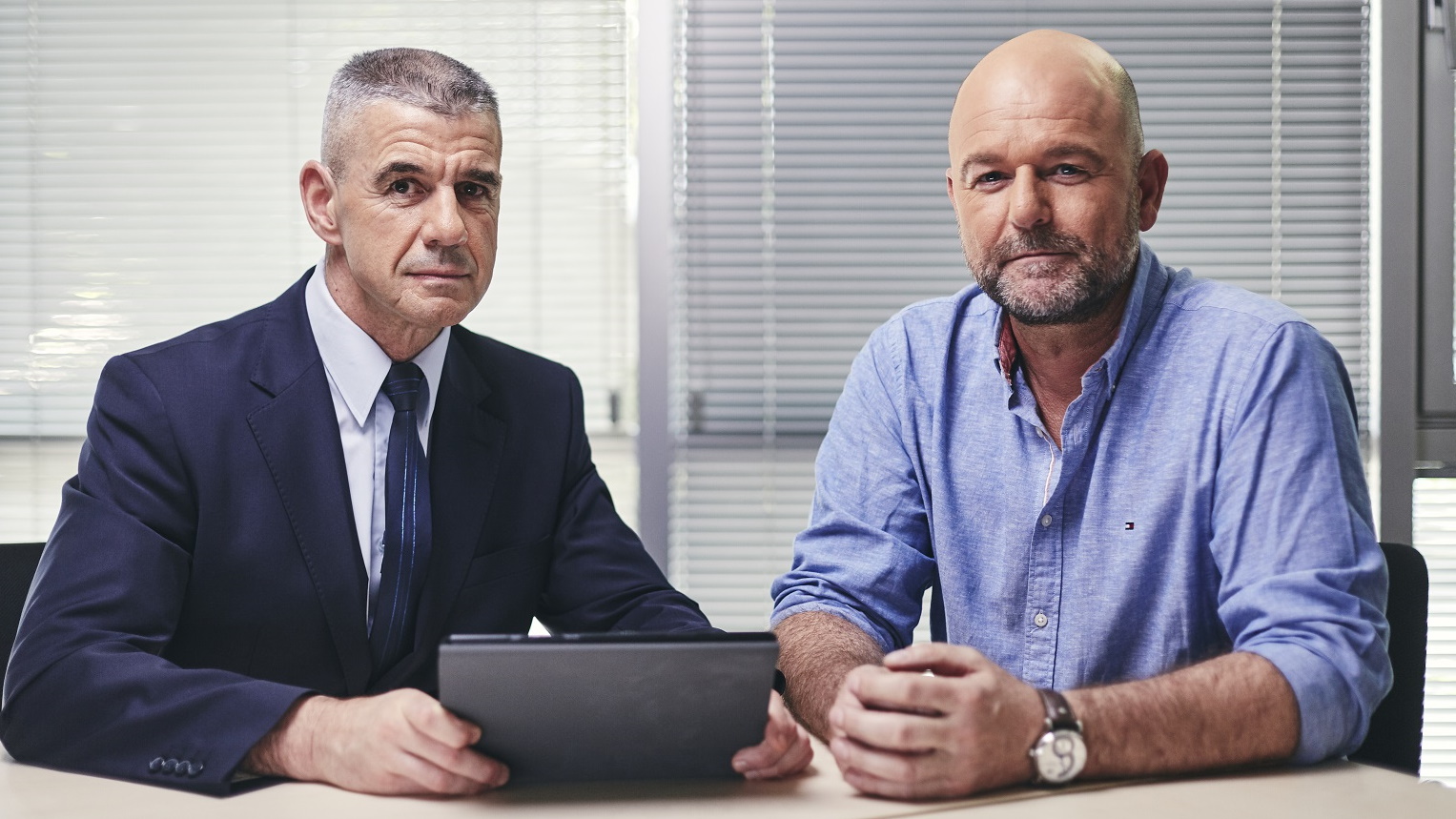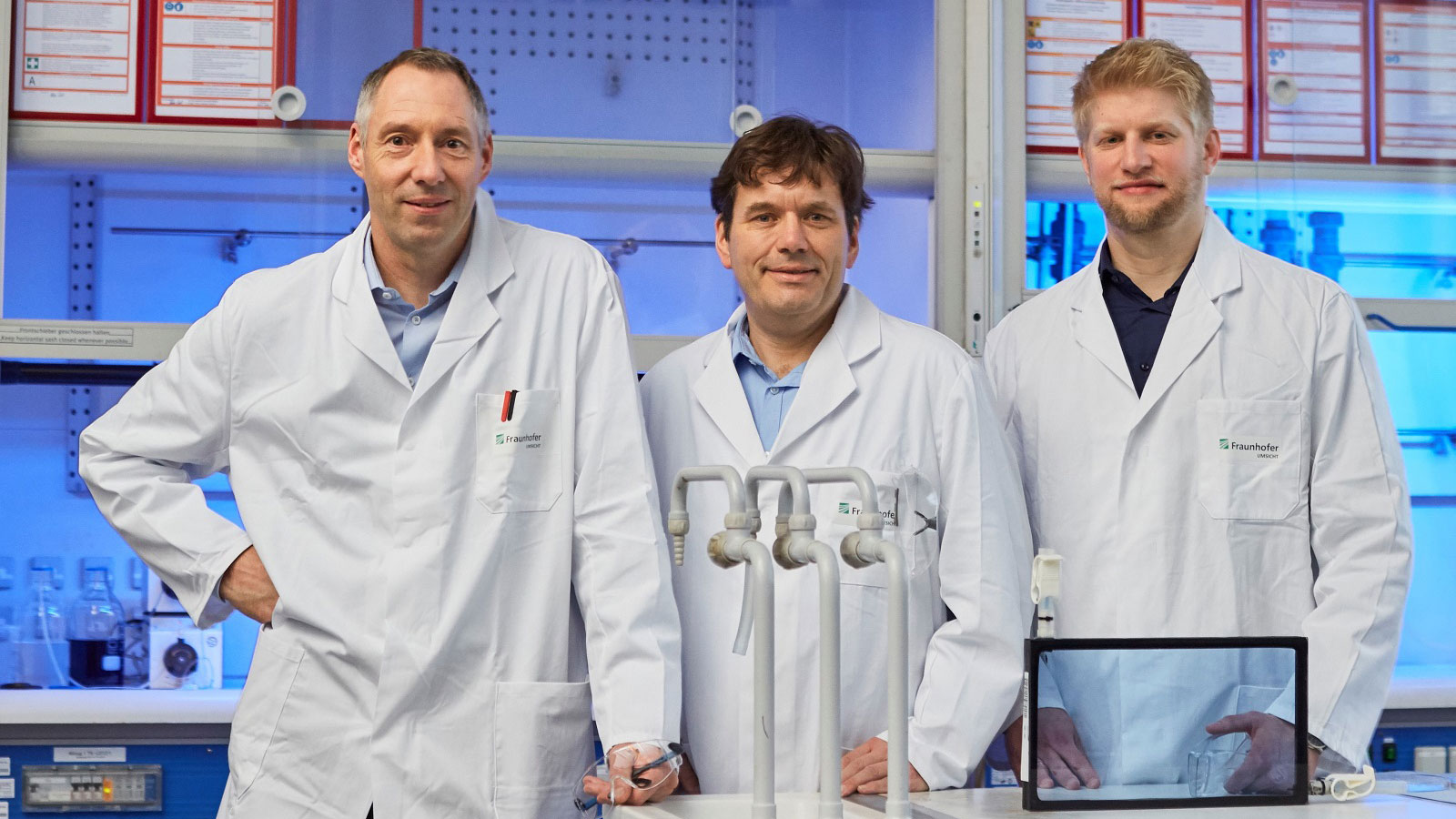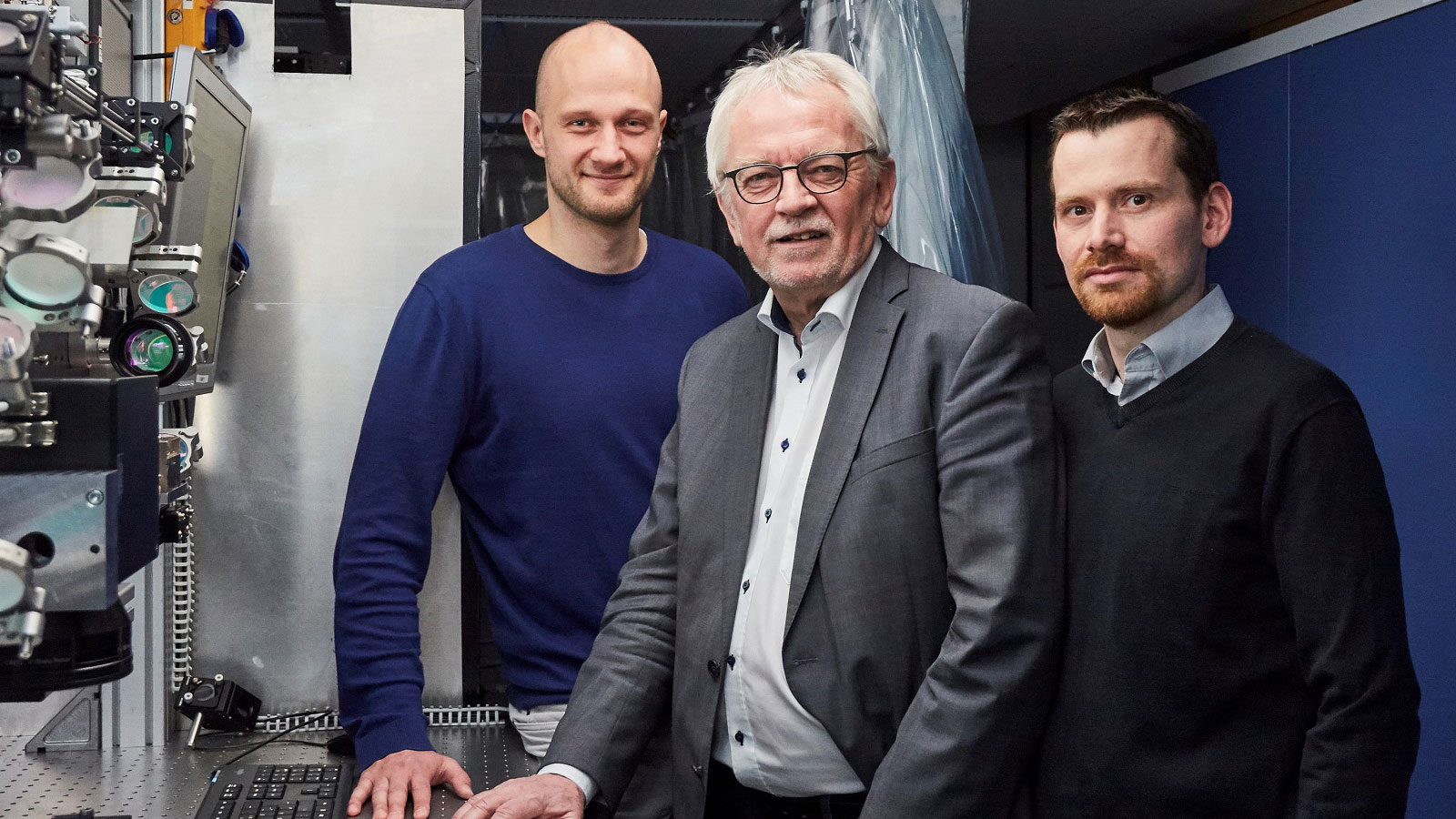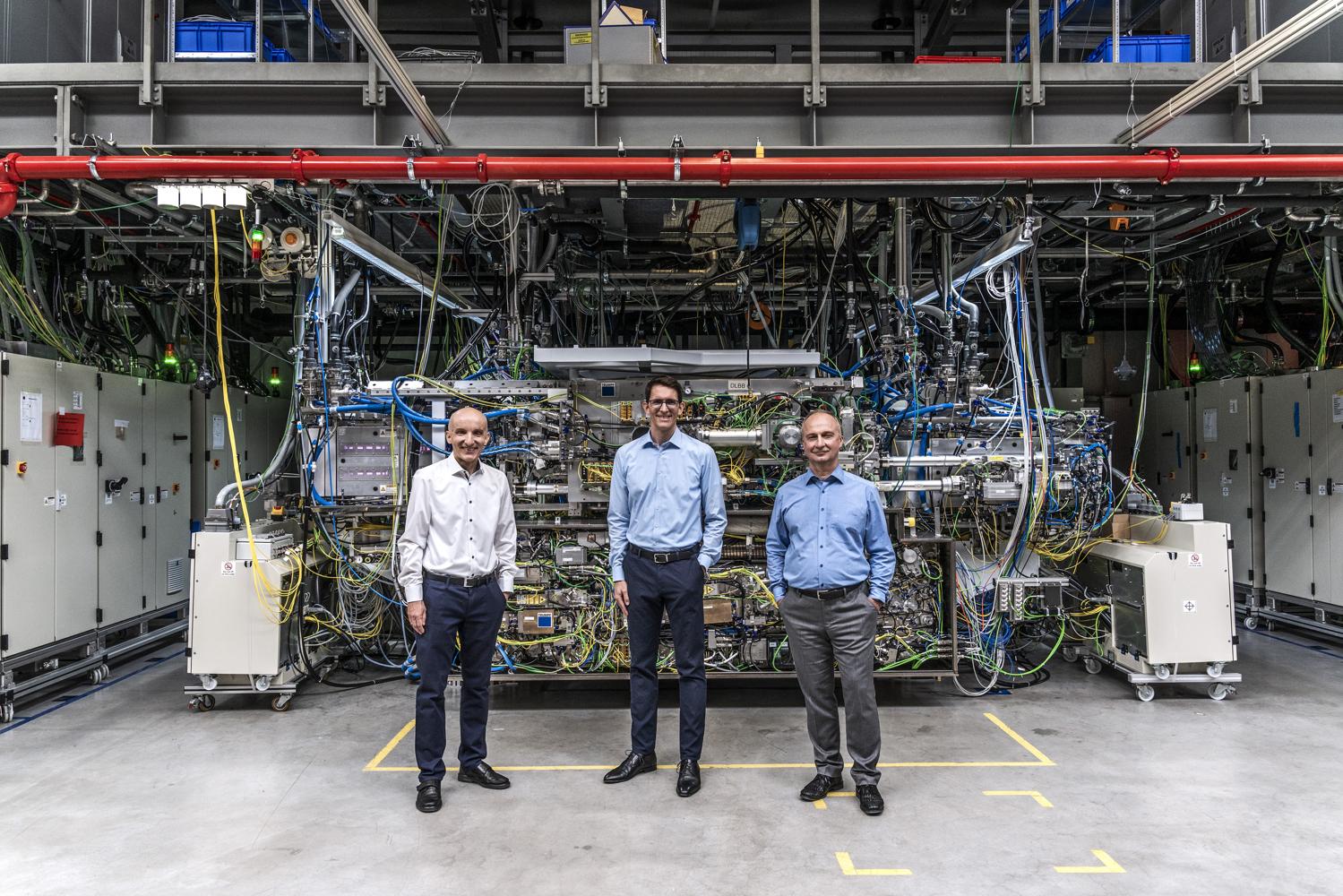Fraunhofer supports economy and society in the fight against the pandemic – and its consequences
April 16, 2020
SARS-Cov-2 has upended every aspect of public life and is a medical and economical challenge of global scope. The COVID-19 pandemic is taking a toll on day-to-day life, on people’s health, on businesses, on the domestic economy and on global trade. The current situation throughout Germany and across the world is posing major challenges for people. Working at the forefront of the fight against the pandemic, Fraunhofer experts are supporting the efforts of industry and society to cope with the immediate effects and the consequences to come: from acute projects in the life sciences sector to close cooperation with companies to immediate medical and medical-technical support.
more info
Fraunhofer Research Awards Ceremony 2020
October 9, 2020
At its annual conference on October 9, 2020 in the Fraunhofer Forum Berlin, the Fraunhofer-Gesellschaft honored outstanding projects of its researchers. #WeKnowHow was the motto of this year’s Fraunhofer annual meeting.
Joseph von Fraunhofer Prizes 2020
- Police, customs, fire brigades, critical infrastructure – they all increasingly depend on satellite navigation. But satnav is easy to disrupt and manipulate. Alexander Rügamer, Dr. Günter Rohmer and Dr. Wolfgang Felber from the Fraunhofer Institute for Integrated Circuits IIS has found a fix for this security predicament. Robust, trustworthy and tamper-proof, this solution won the team this year’s Joseph von Fraunhofer Prize.
- Fuel cells play a key role in the transition to renewables in power and mobility. But the energy efficiency of these cells poses a major challenge, particularly in automotive engineering. The individual components need to be as light and small as possible, yet attain a high efficiency factor. One such component is the DC/DC converter that modulates the fuel cell’s voltage to suit the drive and controls the flow of energy. Conventional wisdom held that it would be impossible to develop a smaller yet more efficient converter. Dr. Bernd Eckardt and Stefan Matlok from the Fraunhofer Institute for Integrated Systems and Device Technology IISB defied that convention, making the impossible possible by developing a new generation of DC/DC converters that meet precisely these requirements. This stride into the future has won the researchers the Joseph von Fraunhofer Prize.
- Setting out to tackle real-world challenges in the fight against terrorism and crime, Dr. Kamen Danowski (Fraunhofer Institute for Transportation and Infrastructure Systems IVI) and Frank-Michael Löst (State Office of Criminal Investigation in Saxony ) have developed a new, future-ready technology for sharing information and coordinating in the field. The developers’ efforts have earned them the 2020 Joseph von Fraunhofer Prize. The solution has since been adopted throughout Germany on the merits of its great practical benefit and acceptance on the part of users.
- Dr. Holger Wack and Damian Hintemann (Fraunhofer Institute for Environmental, Safety, and Energy Technology UMSICHT) and
Thomas Baus (Hörmann KG Glastechnik), have developed a new type of fire-resistant glass that holds up under even extreme heat – and ported this glazing from the beaker to the production line within four years. No more toxic acrylamide, around 85 percent less process waste, a leaner manufacturing process, excellent performance – these product merits garnered the development team the Joseph von Fraunhofer Prize.
Stifterverband Science Prize
A paradigm shift is underway in manufacturing. A research team with staff from the Fraunhofer Institute for Laser Technology ILT in Aachen on its roster has broken new ground by using numerous laser beams as tools to structure surfaces. This accelerates the process and opens the door to new applications. Developed in a joint project called MultiSurf, this technology owes its existence to Dr. Arnold Gillner, Martin Reininghaus and Dr. Johannes Finger from the Fraunhofer Institute for Laser Technology ILT, Dr. Stephan Brüning from Schepers GmbH & Co. KG, Dr. Gerald Jenke from Matthews International GmbH, Dr. Keming Du from EdgeWave GmbH Innovative Laser Solutions, and Dr. Manfred Jarczynski from LIMO GmbH. They have been singled out to receive the Science Prize from the Stifterverband für Verbundforschung for their efforts.

